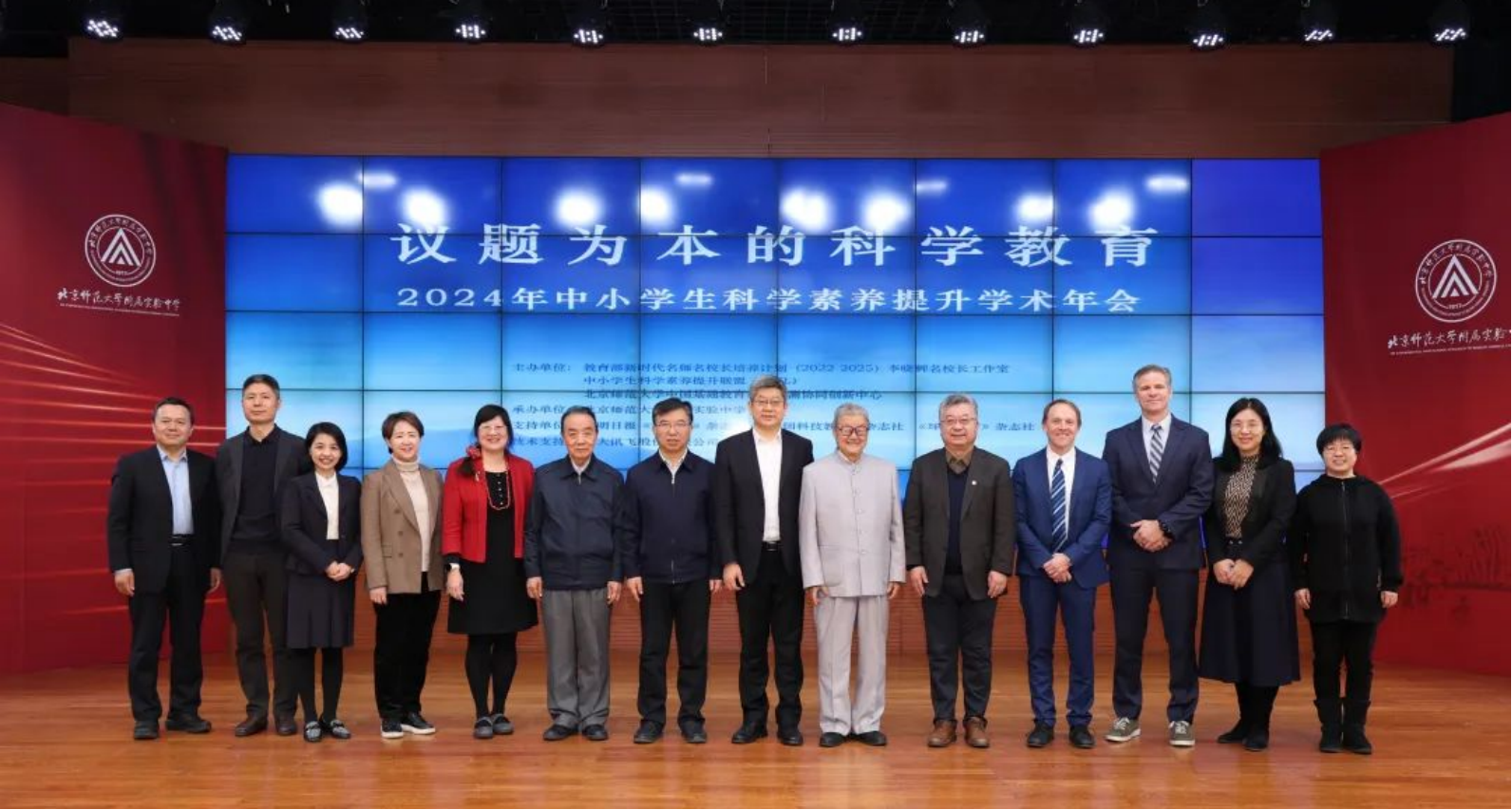
在教育创新的浪潮中,议题为本的科学教育已成为一种变革性的教育范式。为深入探讨议题为本的科学教育转型所面临的挑战,并搭建一个分享创新科学教育策略与经验的交流平台,促进多方深入对话与合作,共同探寻克服障碍、改进议题为本科学教育实施路径的有效策略,2024年12月13-14日,“议题为本的科学教育”2024年中小学生科学素养提升学术年会在北京师范大学附属实验中学召开。本次大会由北京师范大学中国基础教育质量监测协同创新中心、中小学生科学素养提升联盟(AISL)、教育部新时代名师名校长培养计划(2022-2025)李晓辉名校长工作室主办,北京师范大学附属实验中学承办,光明日报《教育家》杂志社、《中国科技教育》杂志社、《环境教育》杂志社、科大讯飞有限公司作为支持单位。会议为期两天,聚焦四大主题:议题为本的科学课程建设、议题为本的科学教学研究、议题为本的教学案例研发和议题为本的科学教育评价改革。会议期间,共精彩呈现了13场大会主旨报告和4场平行论坛,内容丰富翔实,兼具理论高度与实践指导意义。此外,还精心策划了校长论坛、学生论坛等多元化主题分享活动,为参会者带来了一场全方位、多层次的学术盛宴。来自中国、美国、英国、韩国等国家的240余名知名专家学者、北京师范大学“社会性科学议题学习”项目合作校代表、项目学科指导专家,以及校长和优秀教师等各方专业人士齐聚一堂,共同参与了这场科学教育的思想盛会。
描绘蓝图:启幕致辞表达殷切期待
北京师范大学附属实验中学党委书记陈国才、北京师范大学党委副书记刘辉、教育部教师工作司副司长黄小华先后做大会致辞。
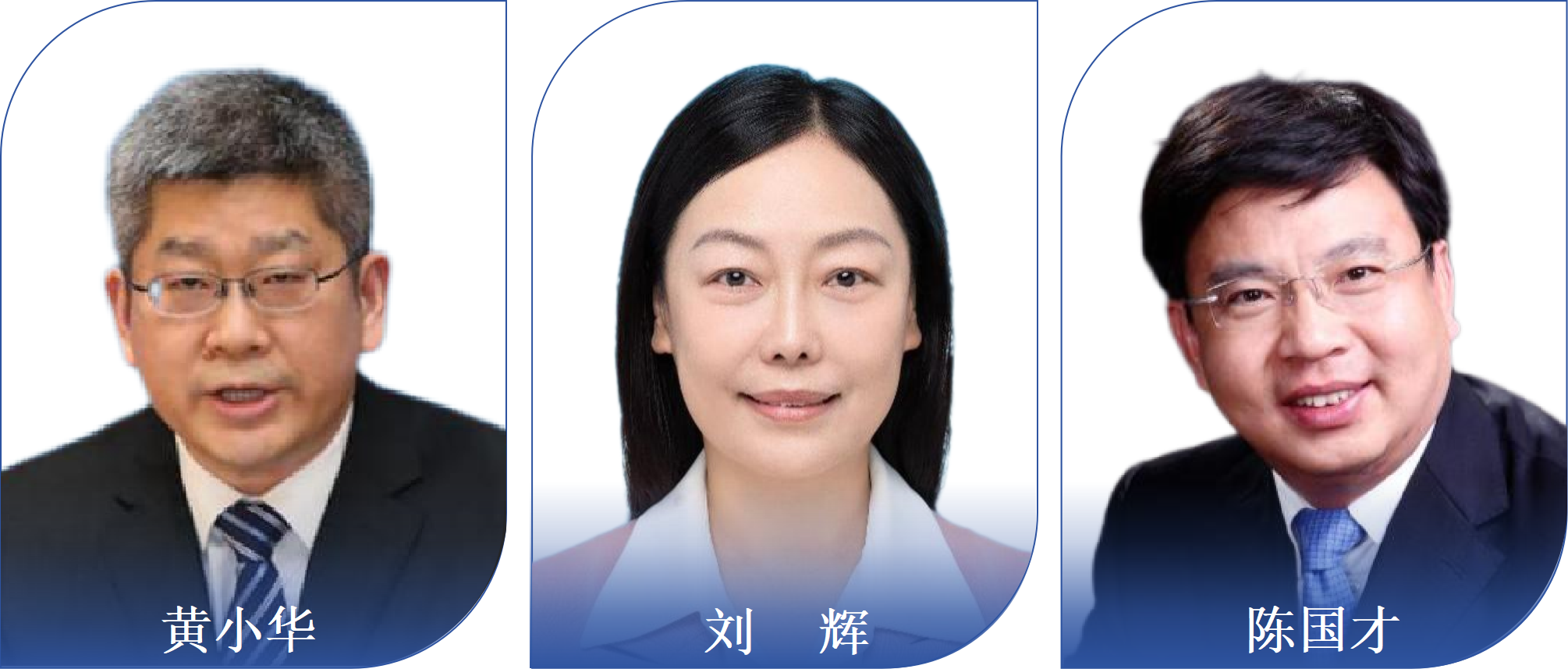
陈国才在致辞中强调,科学教育是顺应时代发展的紧迫需求,是国家繁荣的基石,同时也是培育创新人才的核心路径。陈国才期待通过与会者的深入交流与思维碰撞,进一步拓宽视野,激发创新灵感,共同探索科学教育的无限可能,共同推动科学教育的创新发展,为培养更多具有国际视野、创新能力和社会责任感的新时代青少年贡献力量。
刘辉在致辞中强调,教育科技人才对于国家现代化发展至关重要。习近平总书记的讲话为科学教育指明了方向,寄予了深切期望。展望未来,刘辉着重指出:“面对时代之需、国家之需、教育之需,我们有责任、有义务推动中小学科学教育纵深发展,为培养面向未来、具有创新精神和实践能力的高素质人才奠定坚实基础。”
黄小华在致辞中强调,中共中央、国务院关于加强新时代教师队伍建设的意见和全国教育大会精神为科学教育指明了方向。科学教育是提升全民科学素质、筑牢教育强国根基的关键,特别是在全球化与信息化背景下,加强科学教育尤其是提升校长和教师的科学素养及科学教育水平至关重要。黄小华着重提出三点建议:“一是要高度重视基础教育科学教师队伍的建设;二是要科教协同,推动科学教育高质量发展;三是建好数字智慧平台,丰富科学教育资源。”
播种希望:大国良师推选启动领军人物培养
简短的开幕式后,光明日报《教育家》期刊社社长徐功明进行了“大国良师· 科学教师领军人物”推选说明。“大国良师·科学教师领军人物”培养计划是《教育家》杂志社联合北京师范大学大国良师成长基金管委会共同发起的。徐社长概述了该培养计划的发起背景等基本情况,倡议中小学校在职在岗承担科技类学科教学任务教师积极参与。
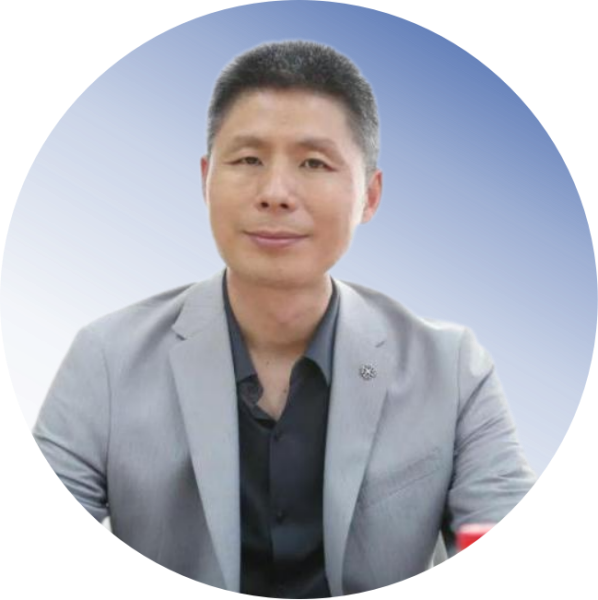
徐功明
本土引领:落地“科学教育加法”
中国科技馆原馆长王渝生带来了题为《AI时代的科学素养》的精彩报告。王馆长指出科学的本质是求真、向善、尚美,科学家永葆好奇探索之心。孩子有想象力和好奇心,是天生的科学家。他概括出科学研究的三个特点——灵感瞬间性、方式随意性、路径不确定性,并给出人才成长和培养的“三部曲”——在实践中发现人才、在活动中培育人才、在事业中凝聚人才,而以议题为本的科学教育正是培养科技人才的极佳路径。
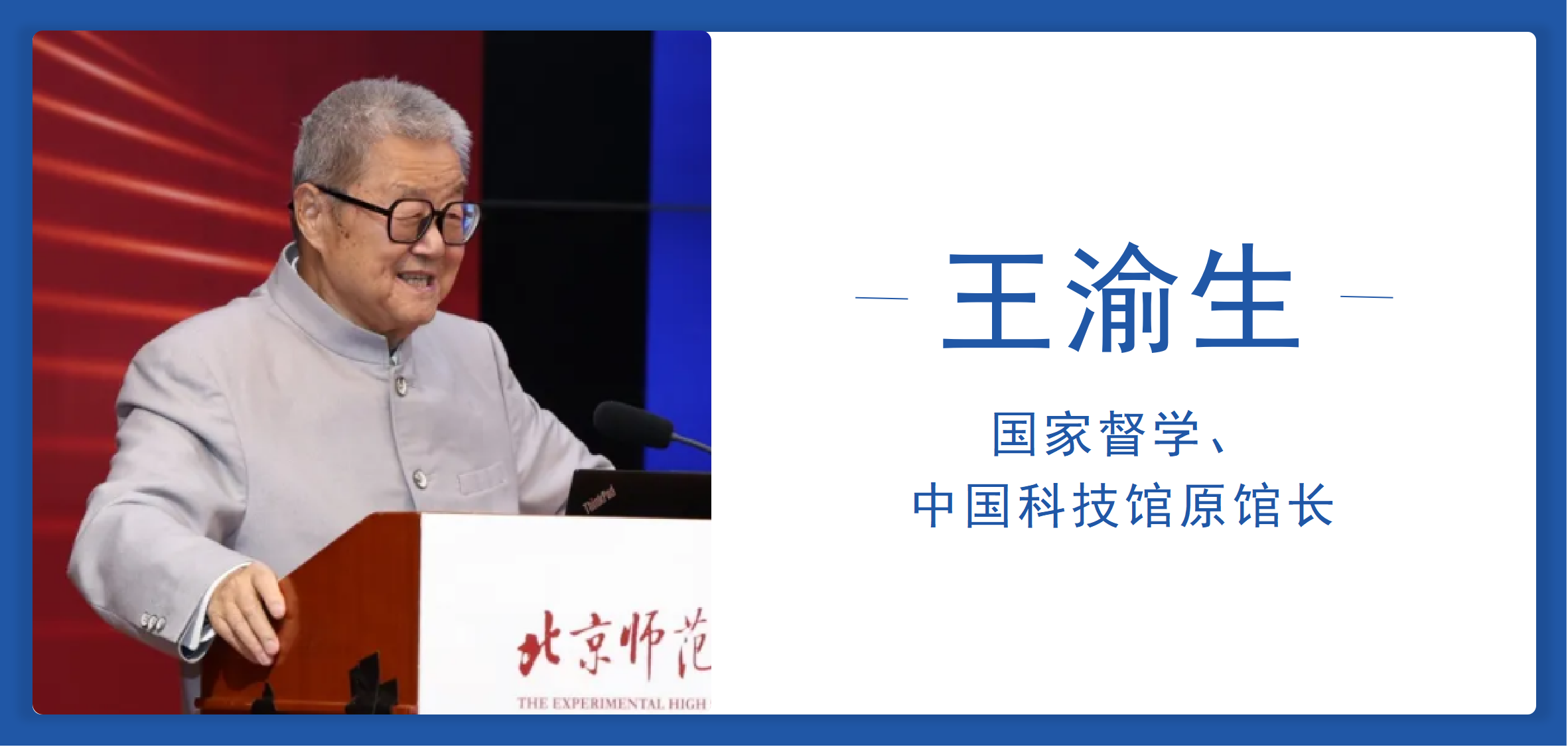
欧洲人文和自然科学院院士、南京信息工程大学执行院长姜彤作了《气候沸腾和绿色应对》的主旨演讲。报告在一开始就深入阐述了 IPCC 六次评估报告在全球气候治理进程中所扮演的关键角色与发挥的重要作用。继而,以详实的数据、生动的案例,详细剖析了今年气候变化所引发的影响以及相伴而生的灾害风险。最后,基于上述分析,提出了应对气候风险的策略,为全球应对气候变化难题提供了极具价值的思路与方向,引发了与会者的深入思考与广泛共鸣。
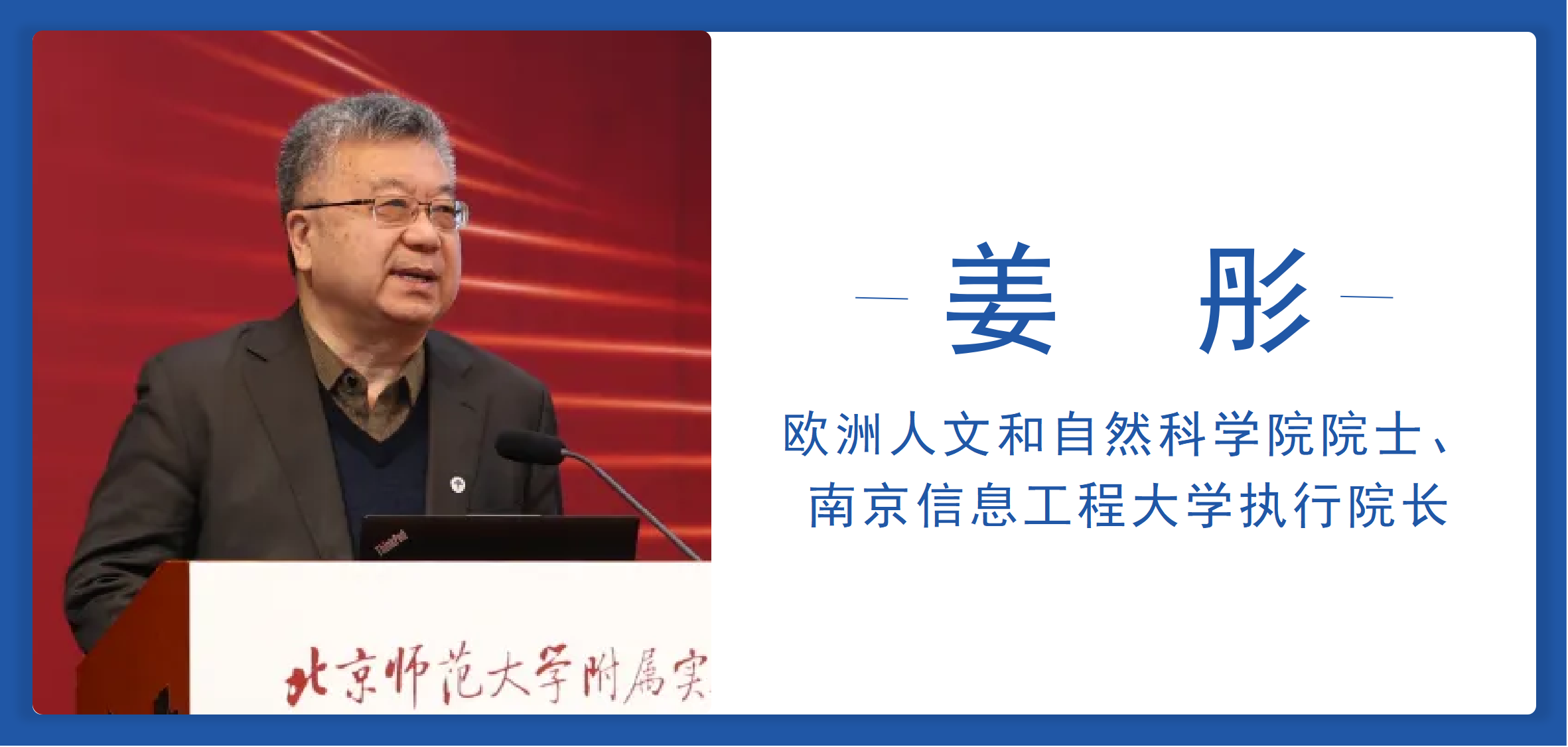
中国可持续发展教育全国工作委员会执行主任史根东从联合国近期发布的未来峰会成果文件引入,作了题为《未来契约视角下的科学教育》的报告。报告强调了科学教育在提升全民科学素质、培育创新人才、培养全球视野和责任感青少年的重要作用。他提出三项科学教育策略:实施系列E-STEAM课程、分批组建科技创新社团、选拔培养科技创新领军人才。
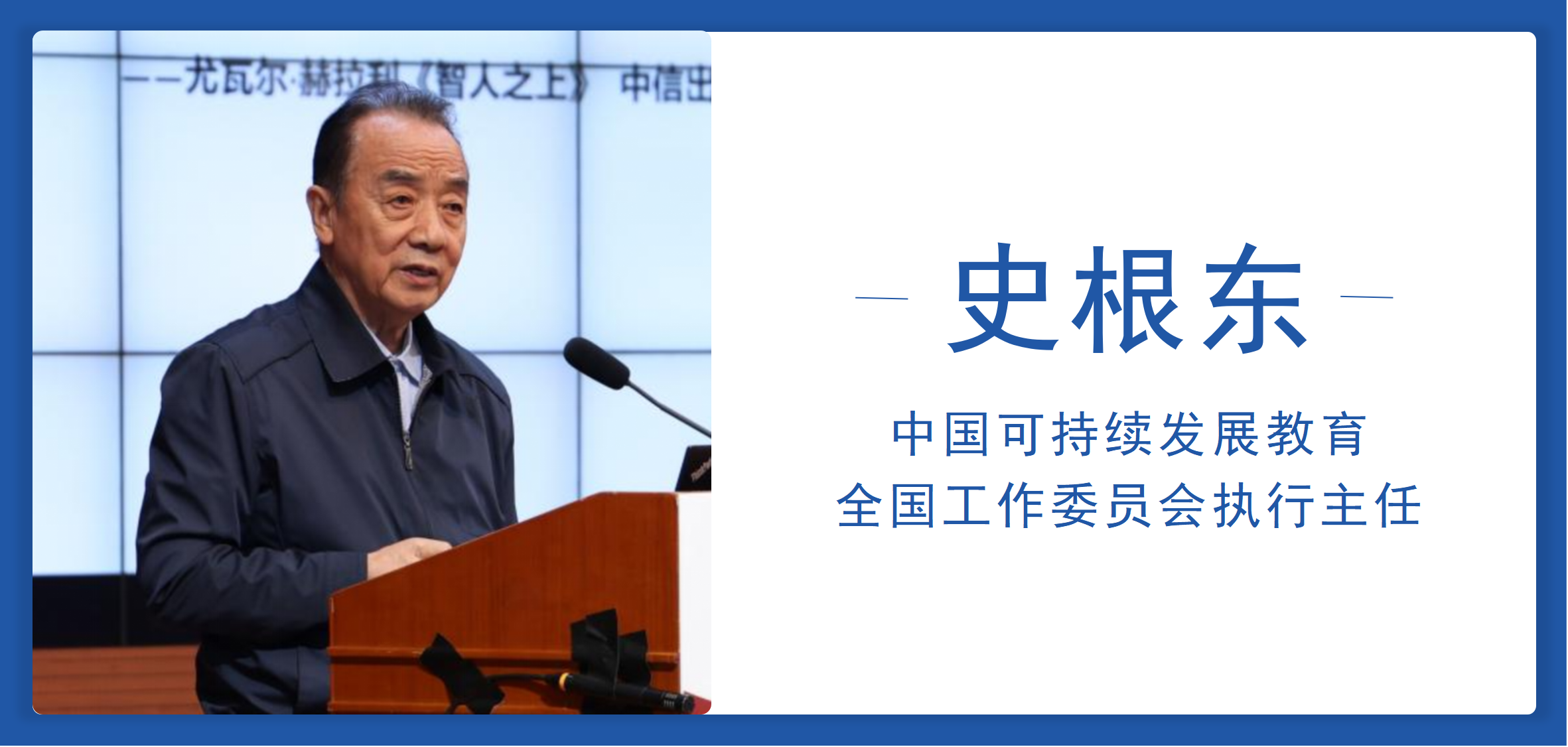
北京师范大学附属实验中学校长、党委副书记李晓辉作了《做好科学教育加法 构建立体多维的学校科学教育体系》报告。李校长基于学校科学教育的发展历程和对科技创新人才培养的思考,详细介绍了学校从宣扬科学家精神和科学精神、构建多层次科学教育课程图谱、拓展学生科学创新实践平台和空间、强化科学教育师资队伍建设和多主体协同育人机制建设四个方面出发,不断拓展科学教育边界,着力构建立体多维学校科学教育体系的做法。
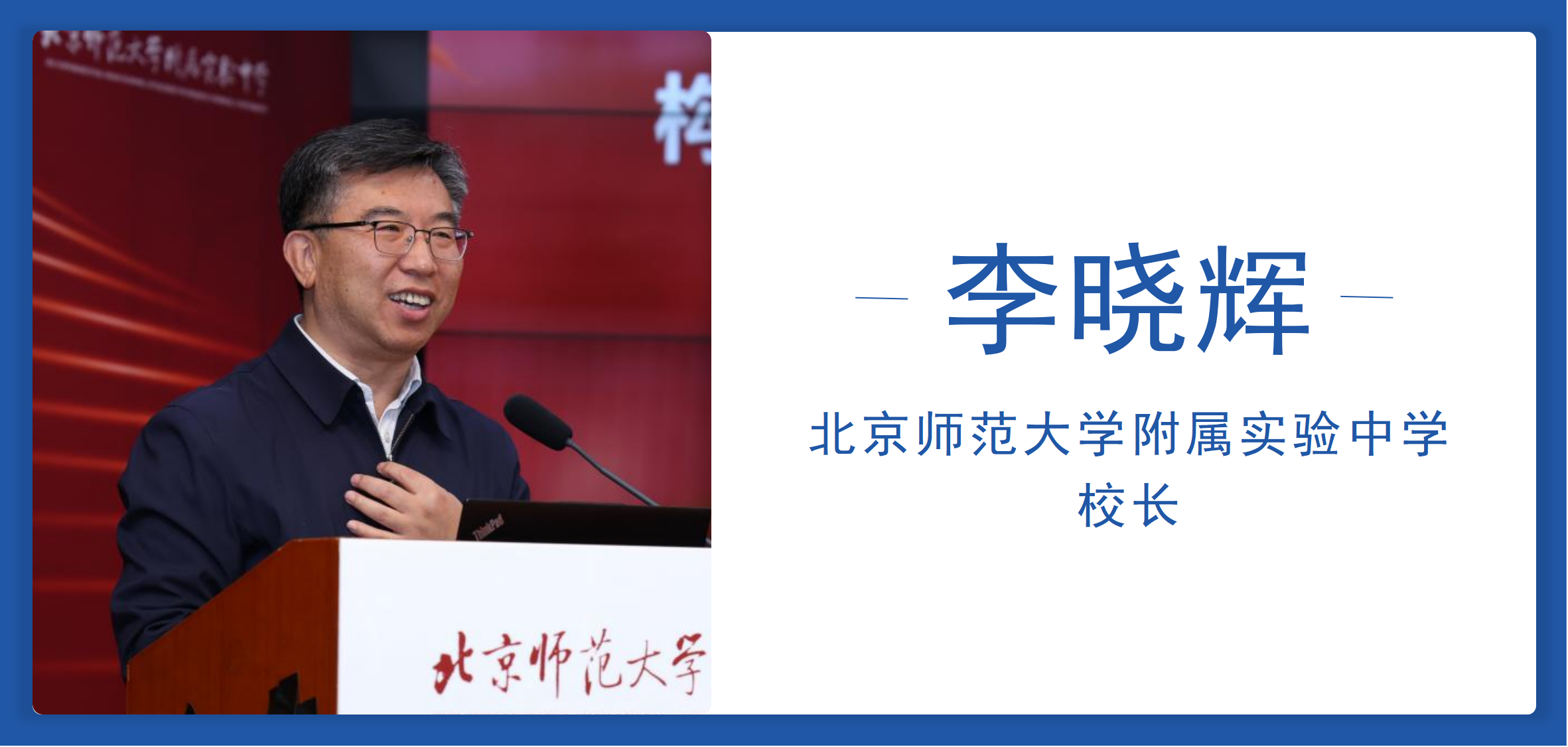
北京师范大学中国基础教育质量监测协同创新中心科学提升部主任、“社会性科学议题学习”项目负责人林静作了《基于社会性科学议题的科学教育“加法”研究与实践》报告。林静先从科学内在的、科学外在的和科学社会的三个视角阐述了科学素养内涵的演化发展,随后介绍了社会性科学议题学习(SSI-L)项目自2020年启动以来,在境内外专家与合作校校领导、骨干教师的协同创新之下,探索了跨学科、主题式、项目化的实施路径,初步彰显了SSI-L五育融合地发展中小学生高阶思维与跨学科实践能力、社会责任意识等育人价值。展望未来,林静表示研究团队将进一步探索高效教学策略,变革课堂教学模式,提升育人成效,以SSI-L为抓手做好“科学教育加法”。
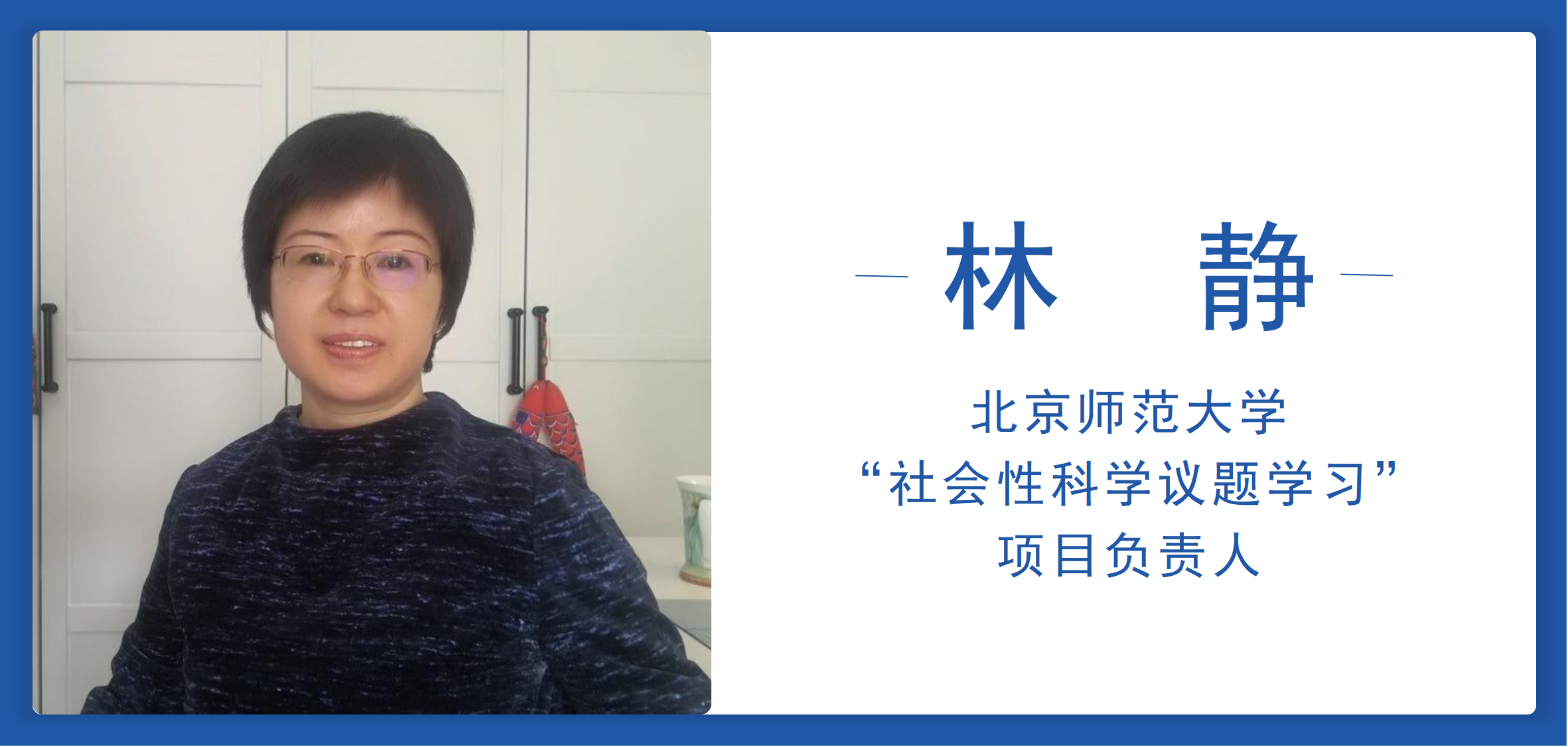
北京教育科学研究院编审、北京师范大学“社会性科学议题学习”项目指导专家耿申在《社会性科学议题:综合素质教育的有效载体》报告中,深度剖析了小学生、中学生、大学生、成人不同年龄段的学习者在探究主题上的差异。他鼓励教师拓宽视野,从多元角度和历史的深度来探讨议题,期望通过与会人员的共同努力,激发出飞轮效应,即在重重挑战面前,持续不断地推动,直至飞轮自发地高速旋转。
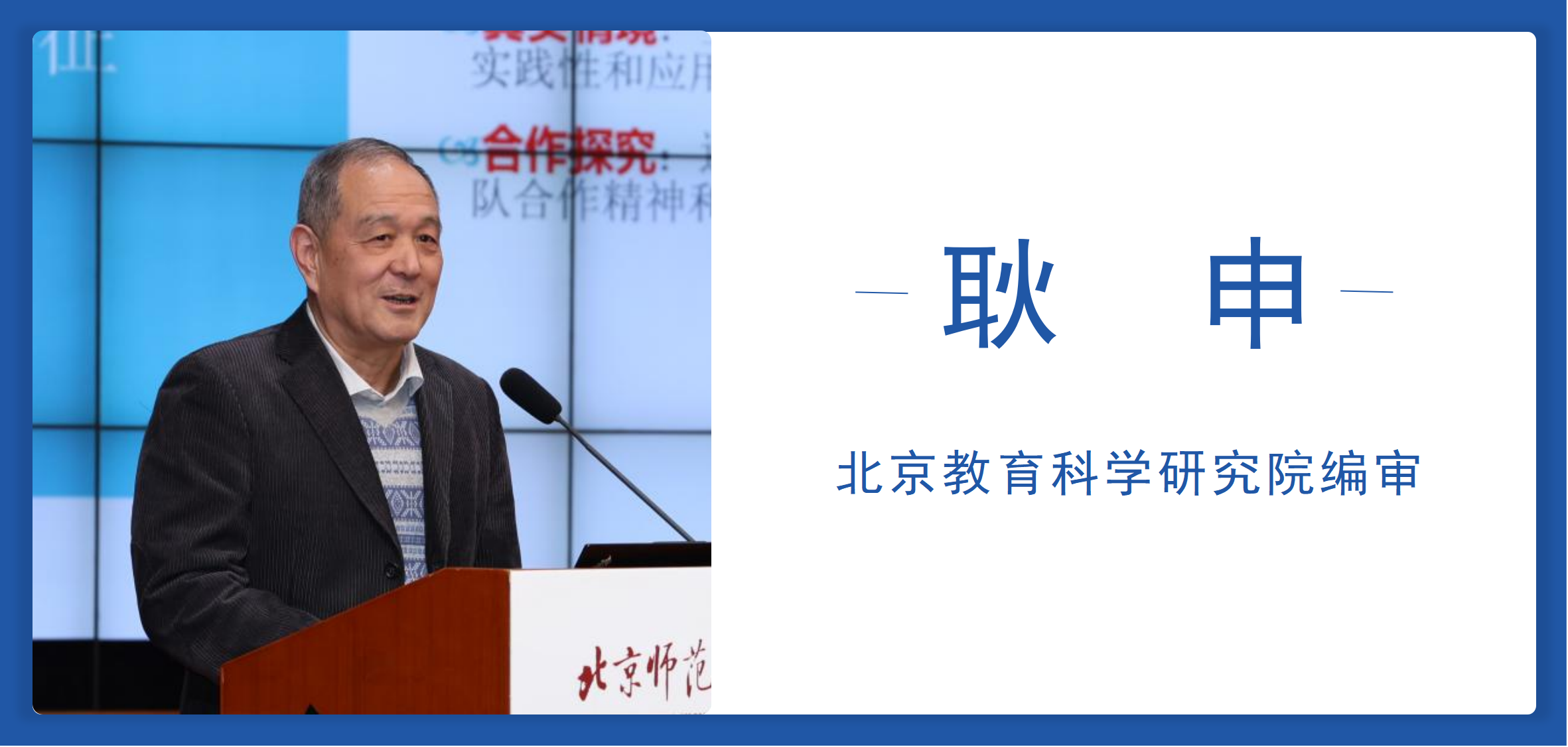
境外借鉴:议题为本的科学教育改革前沿
台湾师范大学荣誉教授邱美虹题为《链接议题、建模与系统思考:拓展科学教学新视野》的演讲,旨在探讨如何将议题导向教学、建模教学与系统思考做有意义的结合,为科学教育开辟新视角。邱教授详细介绍了如何通过“DEAR”建模路径开展以议题为本的科学教育,并提出了模型为本的教学、建模为本的教学、认识的实践梯次发展思路,指出“系统性思考”Systematic Thingking 不等于“系统思考”Systems Thinking,并着重强调引导学生融入环境,建立个人与环境间的互动联系。
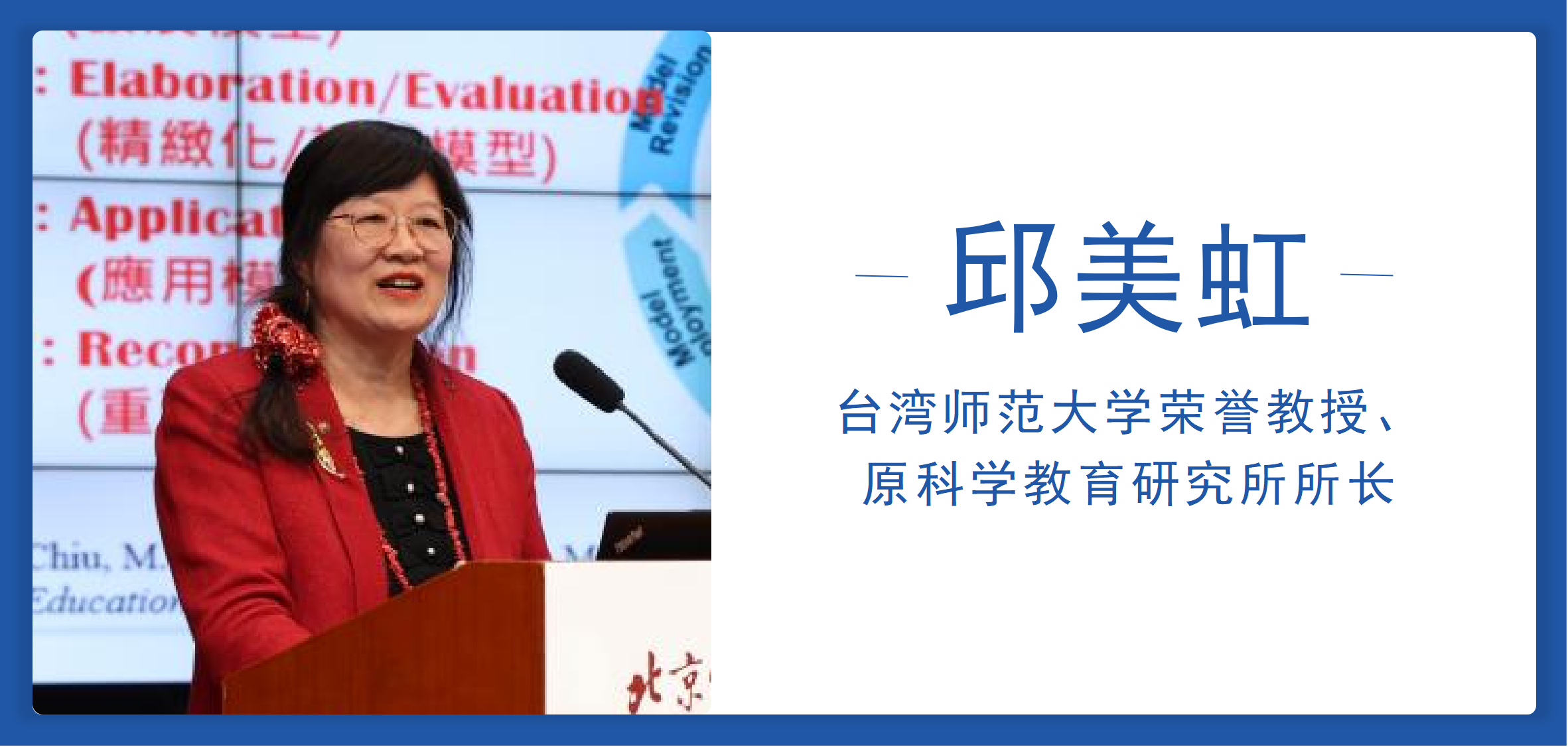
美国北卡罗来纳大学教堂山分校教授Troy Sadler作了《基于科学建模与社会性科学建模的议题教学》报告。Troy Sadler强调,社会性科学议题(SSI)是复杂的社会性问题,与科学领域紧密相关。他的研究团队对科学建模和社会性科学建模分别进行了研究,并开展了一系列科学建模实践活动。这些实践结果显示,运用模型与建模来帮助学生决策SSI,是一种极为有效的应对策略,能够极大地丰富学生和教师的收获与体验。
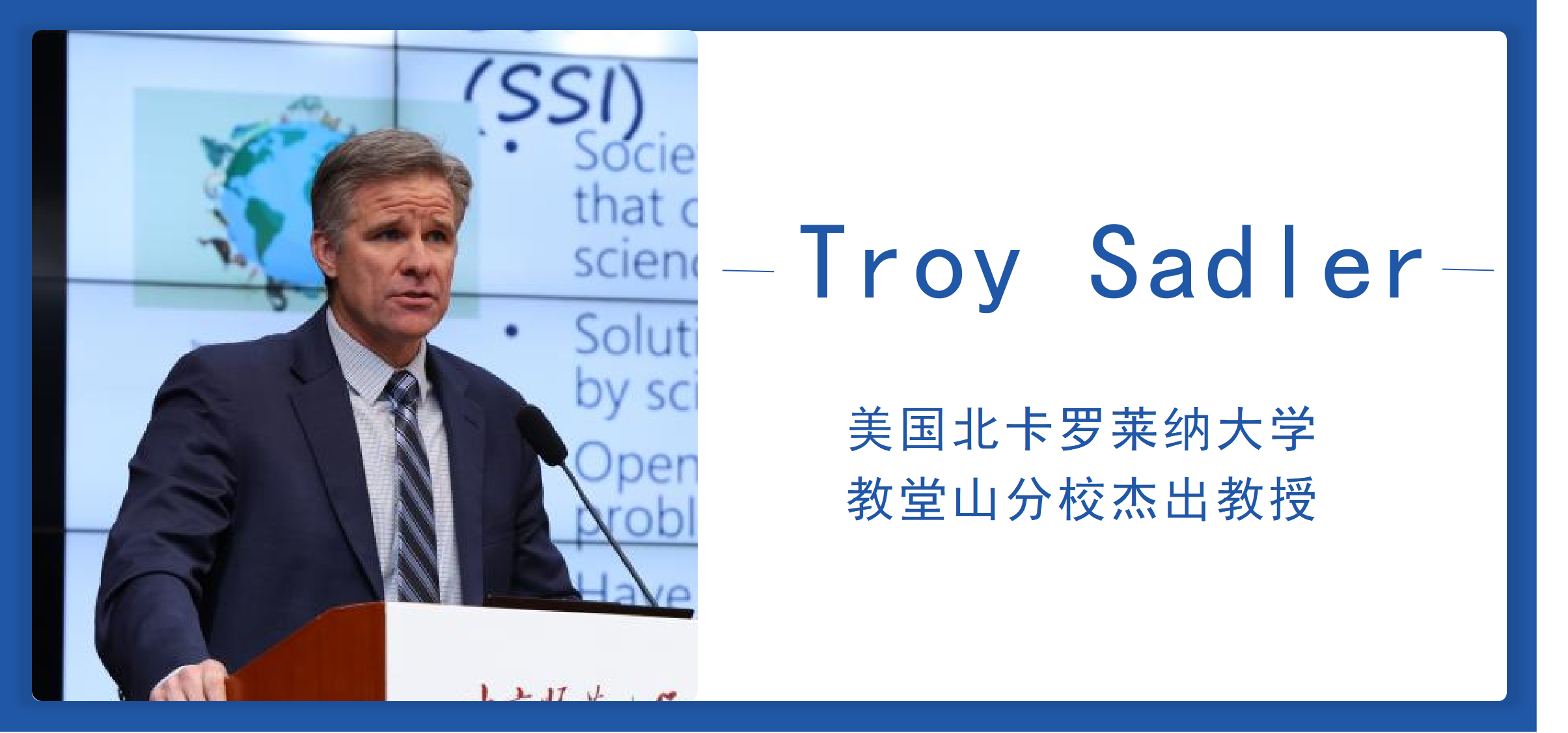
英国伦敦大学教育学院Michael Reiss教授在线上发表了题为《社会性科学议题课堂教学特点与应对》的报告。Michael Reiss提出,社会性科学议题要么与环境和可持续发展有关,要么与健康与技术有关,要从小处着手,而非从整个复杂模型着手进行研究。同时,他强调新教学方法的运用不必过于频繁,关键在于其适宜性和可控性。在选择议题时,应确保难度适中,既包含伦理上的争议点,又能在科学知识上进行深入探究。
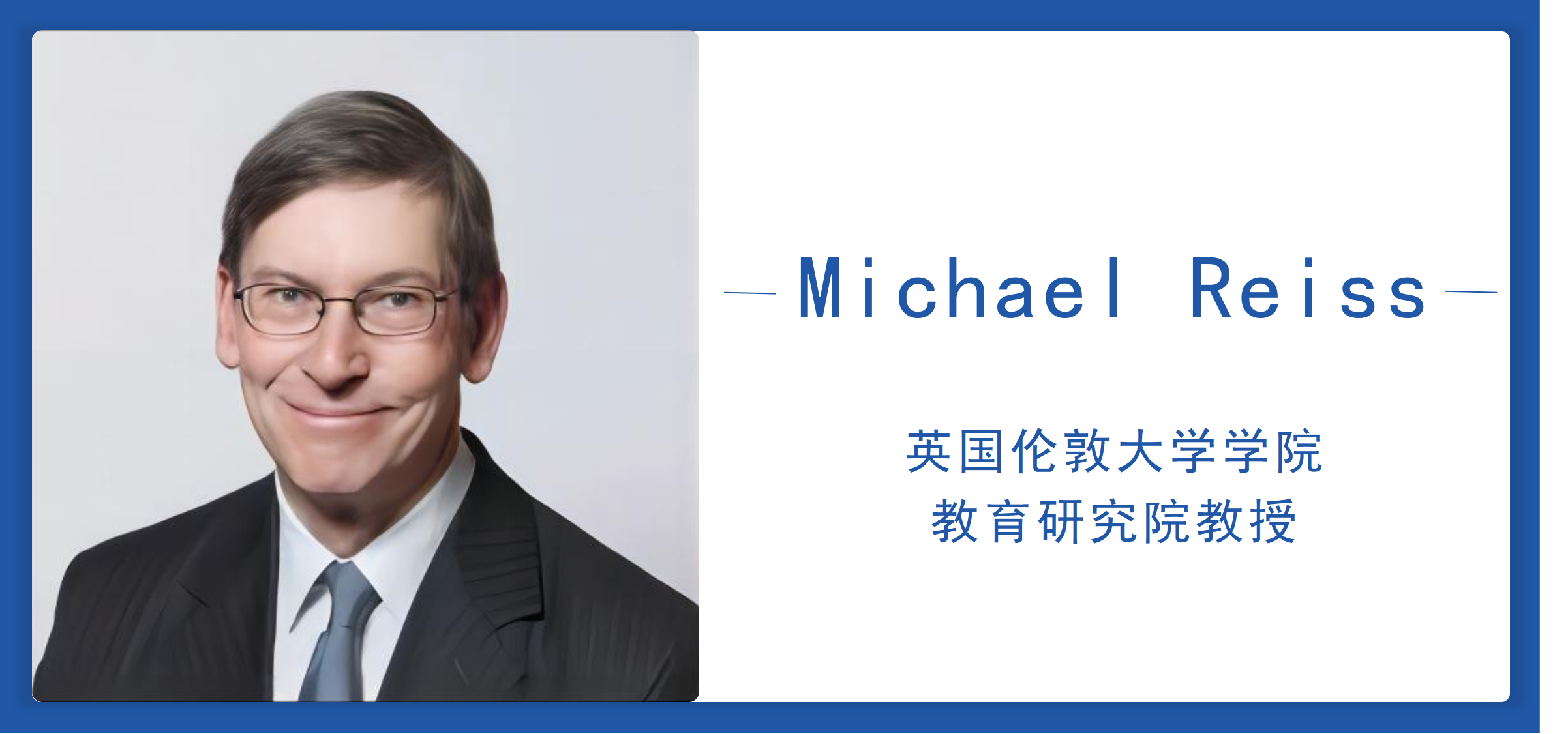
美国犹他大学教授David Stroupe在其报告《议题为本的科学教学的重要性》中分享了源自真实课堂的基于议题的科学教学实例。David Stroupe详细阐述了如何协助教师更好地开展以议题为本的教学工作,强调了欣赏、理解和驾驭不确定性的重要性,并提供了实用的工具和资源。此外,他还鼓励教师引导学生将所学知识应用于社区实践中,同时强调了科学教育工作者肩负的使命,即支持当下及未来的科学教师,共同构建一个高效的学习共同体。
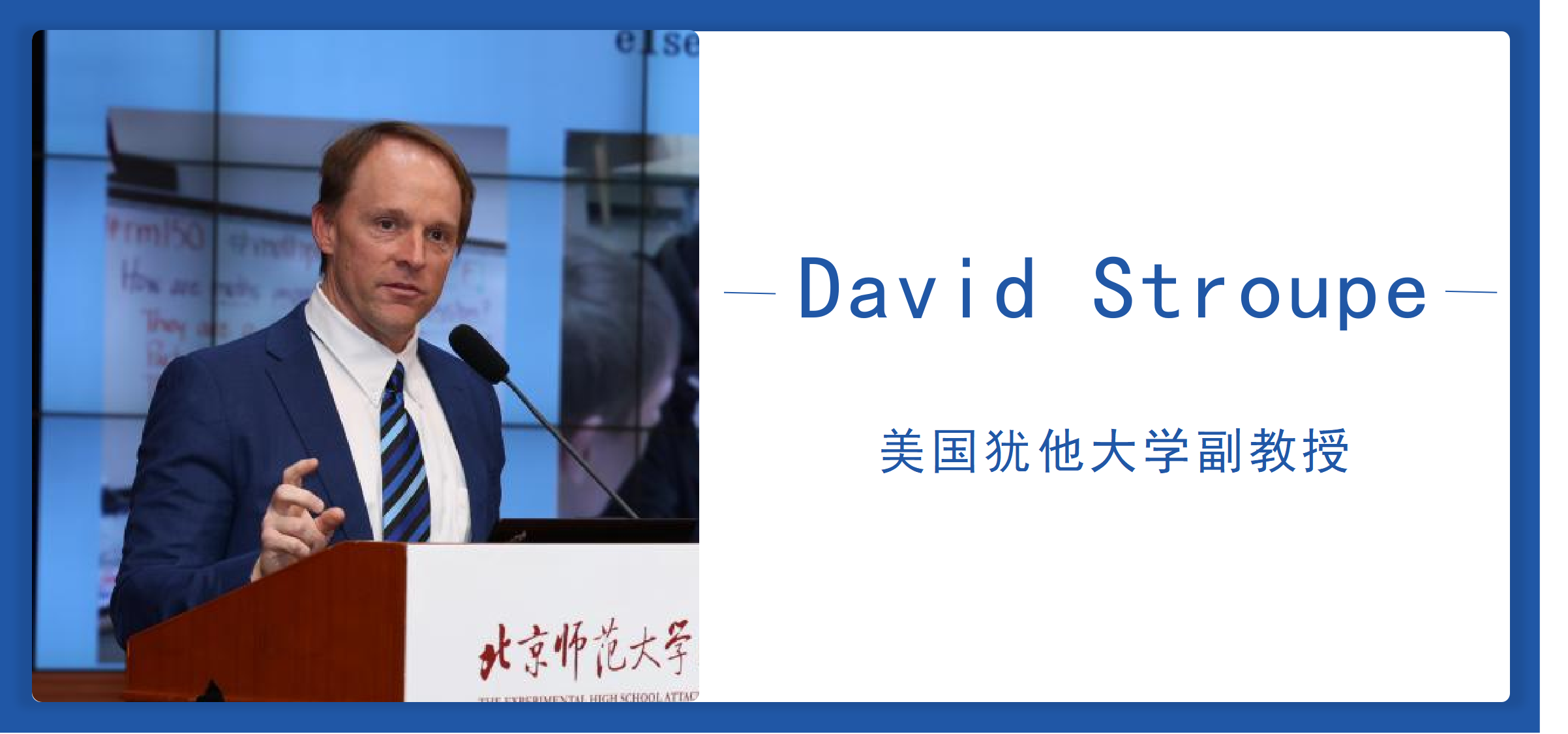
韩国梨花女子大学教授Hyunju Lee做了《科学素养愿景 III 下的社会性科学议题教学》报告。她介绍了基于社会性科学议题学习的三个项目,一个项目着重利用学校和社区资源来解决当地社区中遇到的社会科学议题;一个项目强调通过培养对科学技术本质的理解,让学生参与科学和工程实践以解决问题,并在其所在社区分享解决方案,从而培养学生的社会责任感;还有一个项目针对科学教育中存在的不足(即往往无法帮助学生从科学角度解释或理解与科学技术相关的风险)而开展,着重强调在社会性科学议题背景下进行风险评估的流程,也就是识别、分析和评估风险。
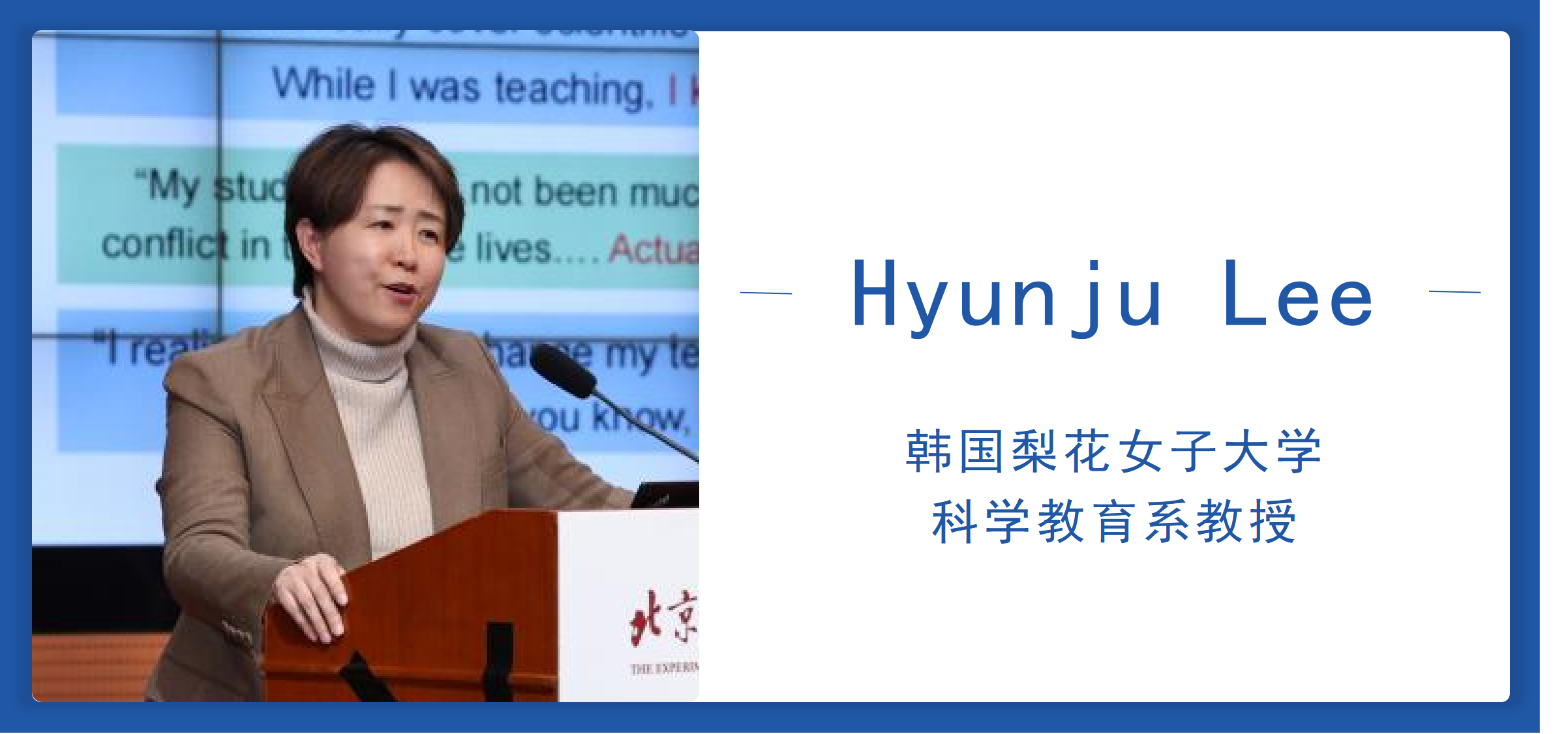
台北教育大学教授林静雯带来了《建模导向的 M-STEM 与社会性科学议题E-SSI探究:以公路选线为例》的精彩报告。她从STEM与SSI的特质异同出发,介绍了建模导向的议题学习。她特别指出,小学生正处于批判性思维发展的关键阶段,因此在教学过程中需谨慎选择方法,避免让孩子们感到迷茫。林教授建议,我们可以从激发孩子们对环境保护的热情出发,培养他们的探究基础和能力,随后逐步引导他们探讨更具争议性的议题,学会深入处理复杂的论证。她强调,让孩子们在研究中找到乐趣,快乐地成长,是教育的重要目标。
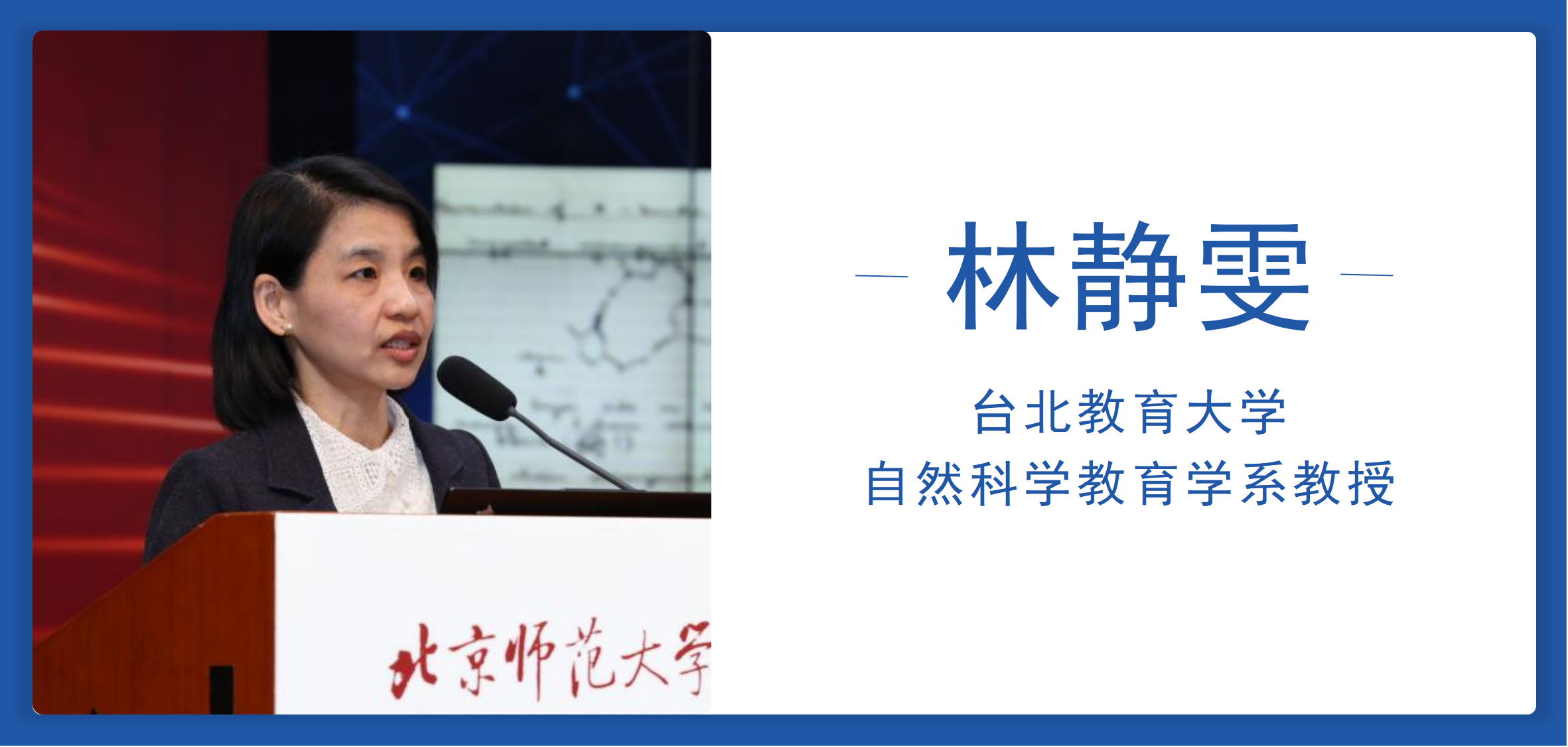
美国北卡罗来纳大学教堂山分校博士生Rebecca Lesnefsky作了《社会性科学议题教学的教师案例研究》报告。她的研究揭示了教师信念、课堂环境与专业发展之间的互动关系,为成功实施SSI提供了宝贵的见解。Lesnefsky博士通过不同实验组的论证,指出了议题活动开展中遇到的实际问题,强调无论是学生还是教师,都需要得到有力的支持以克服课堂教学中的困境。
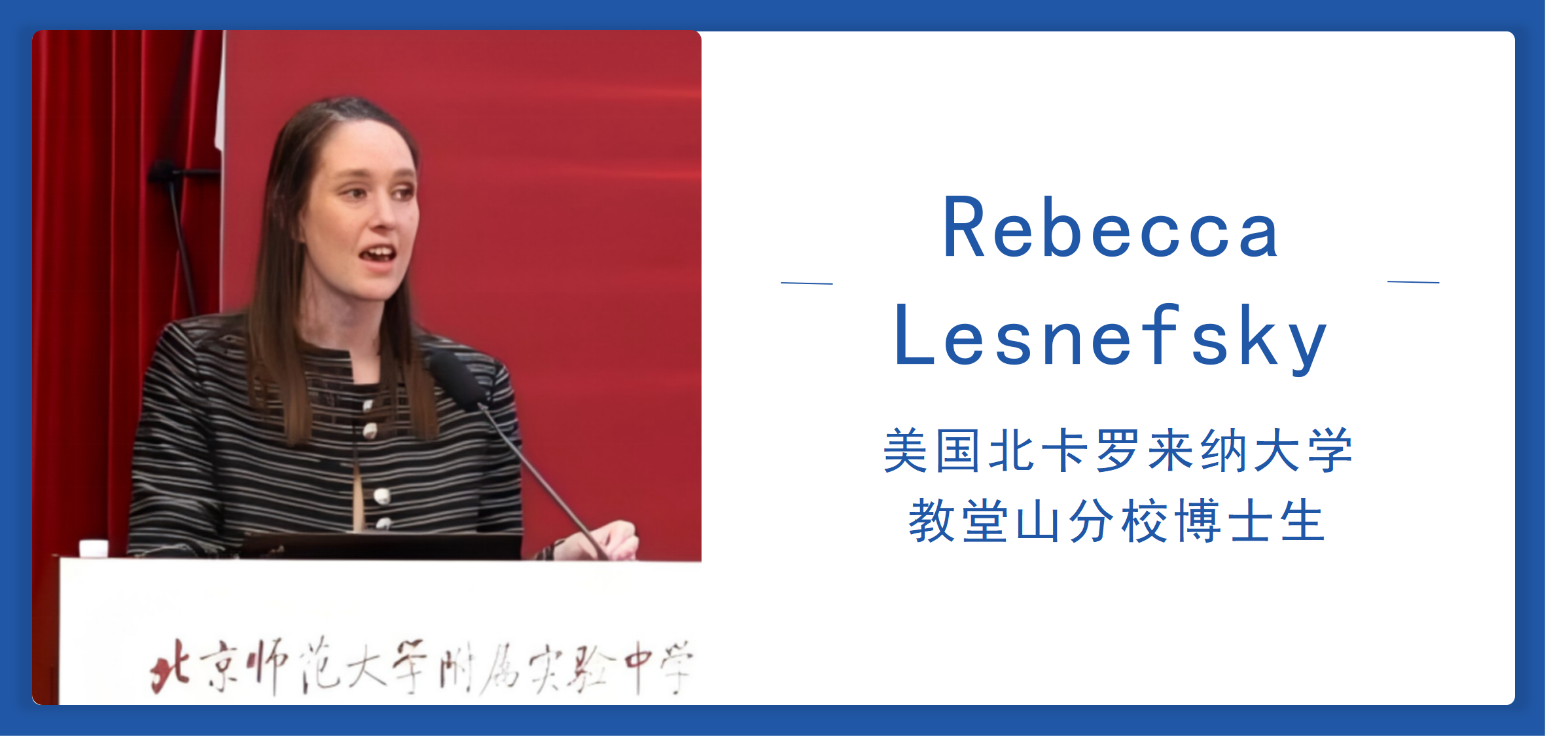
第一天大会的各环节,分别由光明日报《教育家》杂志社采访部主任吴爽在,中国科协青少年科技中心副主任、中国青少年科技教育工作者协会副理事长兼秘书长、《中国科技教育》主编赵崇海,《环境教育》杂志社社长王晓飞、北京师范大学科学教育研究院励耘博士后赵芳芳先后主持。在第一天大会的最后环节,澳门大学柳秀峰教授应邀着重对境外主旨报告进行了评议。柳秀峰概括了境外报告所涉及到的四个方面,即议题教学的价值、用模型和建模来进行SSI的教学、帮助教师进行SSI的教学、SSI教学材料的开发和教师在课堂上的应用,同时还拓展了五点建议,即测量与评价、不同的教学模式比较、在职教师专业方面的发展、SSI与STEM的关系以及AI背景下给SSI的教学提供了什么样的机会与挑战。
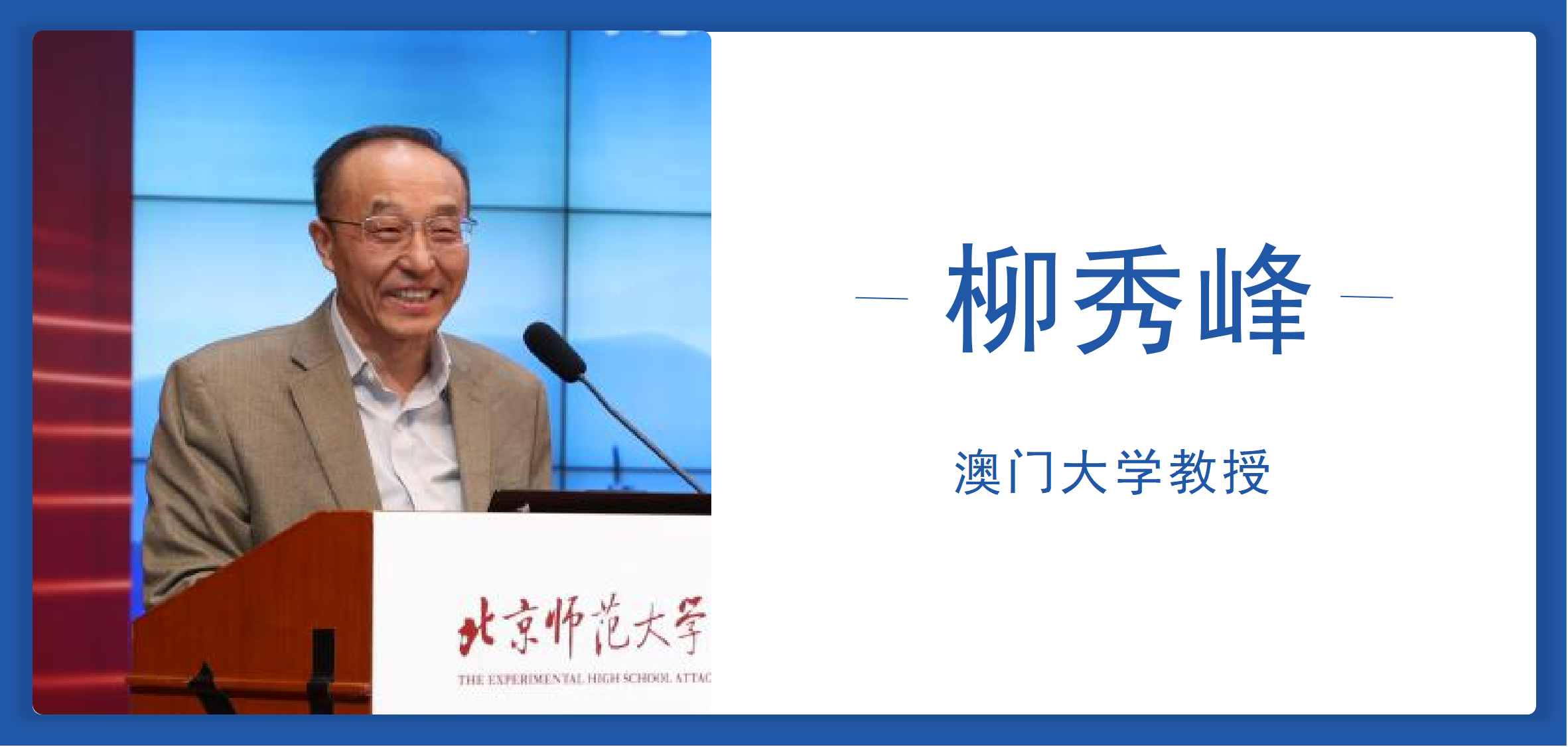
百花齐放:平行论坛呈现丰富的研究成果
12月14日上午,四个平行论坛同时举办。这四个论坛的主题分别是:议题为本的科学课程建设、议题为本的科学教学研究、议题为本的教学案例研发、议题为本的科学教育评价改革。论坛共分享了35项研究成果,这些成果来自全国各地基础教育一线SSI研究的教师、校长、教研员以及高校师生。
平行论坛一由北京师范大学第二附属中学物理特级教师彭梦华主持,9个精彩纷呈的演讲与报告逐一呈现。北京师范大学附属实验中学顺义学校校长杨文芝,以《创建有利于拔尖创新学生“冒出来”的学校环境》为题,分享了她的独到见解。北京师范大学燕化附属中学校长杨琳,带来了《因地制宜根植本土,启智增慧培育英才——基于地域资源培育学生科学素养的探索与实践》的报告。北京师范大学新余附属学校科教中心主任何烈奇,则围绕《基于创新思维培养的科学教育实践与探索》这一主题,展开了生动演讲。北京师范大学附属实验中学学生实践创新中心主任马静,就《学校科技创新平台与资源建设的实践与思考》进行了深入探讨。北京师范大学包头附属学校党总支书记、校长李毅,以《用课程保障科学教育——北师大包头附校科学教育介绍》为题,分享了学校的宝贵经验。浙江省温州市广场路小学集团副校长张常虹,带来了《场馆+:科学教育生态全景跃迁的广小实践》的鲜活案例。北京市密云区大城子学校副校长郭瑞海,发表了《挖掘地域资源 培育科技英才》的演讲,展现了学校独特的育人路径。来自北京市东城区教育科学研究院研究员朱竹,带来了《社会科学议题下单元课程设计的思路与课程整合》的报告。而北京市三家店铁路中学教学主任李挚,则围绕《夯实科学教育主阵地 释放科创实践育种新动能——科学教育校本课程特色化实施的实践探索》进行了精彩分享。
在交流互动环节之后,与会老师就分享内容展开了热烈讨论。北京教育科学研究院终身学习与可持续发展教育研究室主任张婧、江苏省教育科学研究所原所长成尚荣对交流的案例进行了深刻点评。同时,与会人员积极参与,共同探讨了科学教育的未来发展方向。

平行论坛一:议题为本的科学课程建设
平行论坛二由北京市海淀区教师进修学校教育集团生物学特级教师周有祥主持下,成功展示了9项研究报告。周有祥特级教师以《基于育人价值推进科学教育中的社会性议题教学》为题,贡献了他的深刻见解。北京教育科学研究院通州区第一实验小学杨庄校区课程处副主任江卫园,呈现了《以驱动性问题促进学生社会性科学议题学习》的研究报告。北京师范大学附属实验中学教师王成、李梦豪、孙翊斐三位教师联合展示了《构建社会性科学议题学习环境的思考与探索》。北京师范大学台州实验学校教师王玉凤,详细介绍了《激发潜能:跨学科项目化学习在科学教育中的探索与启示》。北京教育学院石景山分院科研员马强,以《指向可持续发展素养培养的SSI-L策略探析》为题分享了有效策略。山东省威海市河北小学教务副主任潘丽珺,介绍了《基于社会性议题的微项目式学习》的研究成果。浙江省杭州市橄榄树学校教师黄子越,发表了关于《议题为本的科学教学创新》的演讲。北京师范大学中国基础教育质量监测协同创新中心博士生赵红艳,则围绕《“不确定性”驱动的话语互动建模教学模式》,进行了分享。北京师范大学亚太实验学校教师刘彩合、贾杰两位教师,共同呈现了《SSI-L课堂教学挑战与策略》的精彩分享。
报告交流环节结束后,北京市密云区教师研修学院小学科学特级教师李伟臣和北京教育科学研究院编审耿申,对所交流的报告进行了精准的精彩点评。同时,与会人员积极参与讨论,共同探索基于议题的科学教育教学研究新思路。

平行论坛二:议题为本的科学教学研究
平行论坛三由北京市通州区教师研修中心小学科学特级教师曹春浩主持,展示了来自全国各地的9项研发案例。北京市西城区德胜中学党支部书记李燕玲带来了《北京通学公交》的研究案例。北京一零一中矿大分校生物教师于洋分享了《中医香文化是否值得保留》。人大附中航天城学校信息技术学科教师赵琪旻以《揭秘网络钓鱼:认知、防范与社会行动》为主题进行了演讲。湖南省长沙市望城区长郡月亮岛第二小学科学教师张玉莹介绍了《天空城市与湿地开发》。上海市杨浦高级中学地理教师姜俊杰分享了《校园湿地需要人工干预吗?》。浙江省乐清市教育研究培训院小学科学研训员张耀尹作了《做更健康的自己》的报告。浙江省杭州市下沙中学科学教研组长江艳春,带来了《无土栽培果蔬是“智商税”吗?》的分享。江苏省南京市晓庄小学心理学科教师徐瑞环,讨论了《网络游戏的利与弊》。山东省荣成市府新小学德育主任王小英则讲述了《荣成景观树与景观灯》。
在案例交流环节之后,与会教师就所分享的内容进行了深入讨论。山东威海环翠区教育教学研究中心副书记王静和北京可持续发展教育协会秘书长王鹏对交流案例进行了精准点评。此外,邱美虹、林静雯、Hyunju Lee等境外专家也给予点评与研讨。与会嘉宾满载而归。

平行论坛三:议题为本的教学案例研发
平行论坛四在浙江省杭州市基础教育研究室初中部主任金京生的主持下进行,呈现了8项关于科学教育评价改革的研究成果。金京生主任首先发表了《以评促探——基于标准的科学探究评价工具研制与应用》的研究成果。紧接着,山东省威海市高区世昌中学副校长唐守佳展示了《学业测评中SSI元素分析及教学指向》。香港大学教育学院博士生陈雨静作了《中国内地高中生作为全球公民的社会性科学取向:基于调查的定量与定性分析》的报告。北京师范大学“社会性科学议题学习”项目办成员刘阳丹分享了《社会性科学议题科学论证评价》。浙江省杭州市钱塘区教师教育学院教研员姚雪飞深入解析了《表现性评价在区域教学中的实践研究》。北京师范大学中国基础教育质量监测协同创新中心博士生罗铖吉带来了《社会性科学推理能力评价研究》。沈阳师范大学生命科学学院副院长刘新宇分享了《基于生物学核心素养的SSI教学评价体系》。北京师范大学中国基础教育质量监测协同创新中心硕士生冯冰汇报了《科学身份认同的概念辨析与测评分析》。
在点评与讨论环节,山东省威海市教育教学研究院生物学特级教师张涛和北京师范大学中国基础教育质量监测协同创新中心体育与健康监测部主任李佑发教授对所交流的案例进行了精彩点评。与会者积极提问,反馈热烈,现场气氛活跃。

平行论坛四:议题为本的科学教育评价改革
深度对话:校长论坛与学生论坛思维激荡
12月14日下午,首先进行的是校长论坛。论坛由国家督学、江苏省教科所原所长成尚荣主持,出席论坛的嘉宾有人大附中航天城学校校长周建华、北京师范大学台州实验学校书记王进、浙江省杭州电子科技大学附属中学书记童永圣、山东省威海市羊亭学校校长李蕾、北京市石景山区金顶街第二小学校长王京兰。在主持人的引领下,几位校长围绕议题为本的科学教育新范式和教育价值、各校开展的社会性科学议题教学实践的经验以及怎样突破社会性科学议题学习面临的挑战和解决路径三个方面阐述了自己的看法。期间主持人与嘉宾提问互动,谈话精彩纷呈。
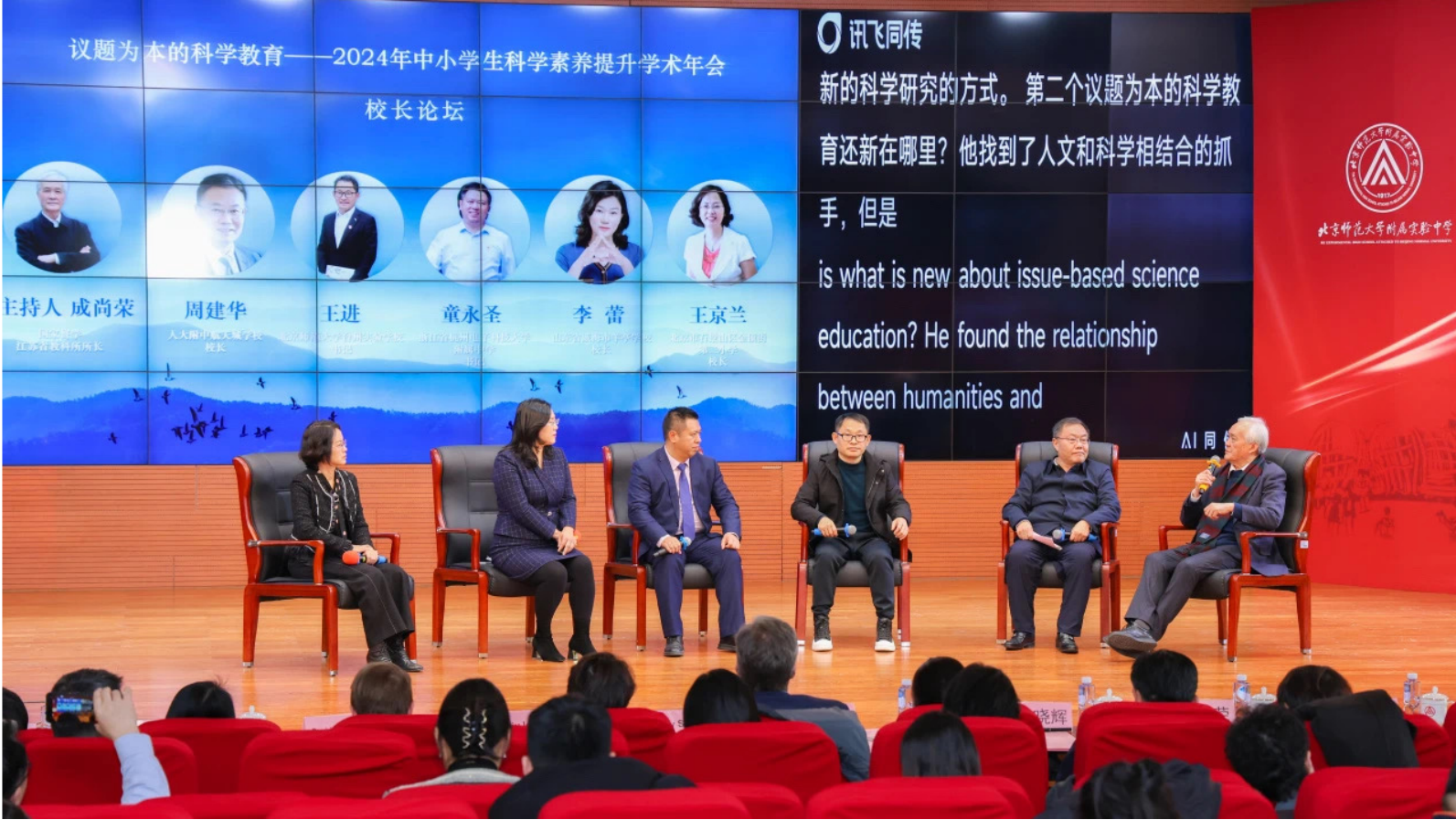
校长论坛
紧接着开展的是由《光明少年》杂志主编宋欣园主持的学生论坛,来自北京市五所学校的学子们展示了他们在社会性科学议题学习中的成果。北京师范大学附属实验中学马培泽、刘澈展示的是《绿色出行——应对全球变暖我们在行动》,北京师范大学附属实验中学冯涵琪、凌亦辰发表了《应对全球变暖我们在行动》报告,这两个报告均由王成、李梦豪、孙翊斐老师指导。北京师范大学亚太实验学校的张翰和彭昌祺在贾杰、刘彩合老师的指导下,完成了《像科学家一样思考——构建“温室效应”模型》的报告。人大附中石景山学校的张子优在肖玉婷、马强老师的指导下,展示了《科学教育中的探险之旅——空间站环境下干冰实验研究》。北京市京源学校的高鹏飞在宋秋宾老师的指导下,展示了《诱食剂对大麦虫取食泡沫塑料的影响研究》。北大附中石景山学校的王浩宇在杨超杰老师的指导下,展示了《北方城市居住小区植被观测与栽培建议》。
在学生们精彩纷呈的展示汇报之后,进行了一场生动活泼的学生圆桌对话。此次对话紧密围绕“呵护生态,争当绿色生活先行者”的主题展开。主持人与学生之间的互动充满亮点,现场气氛活跃。
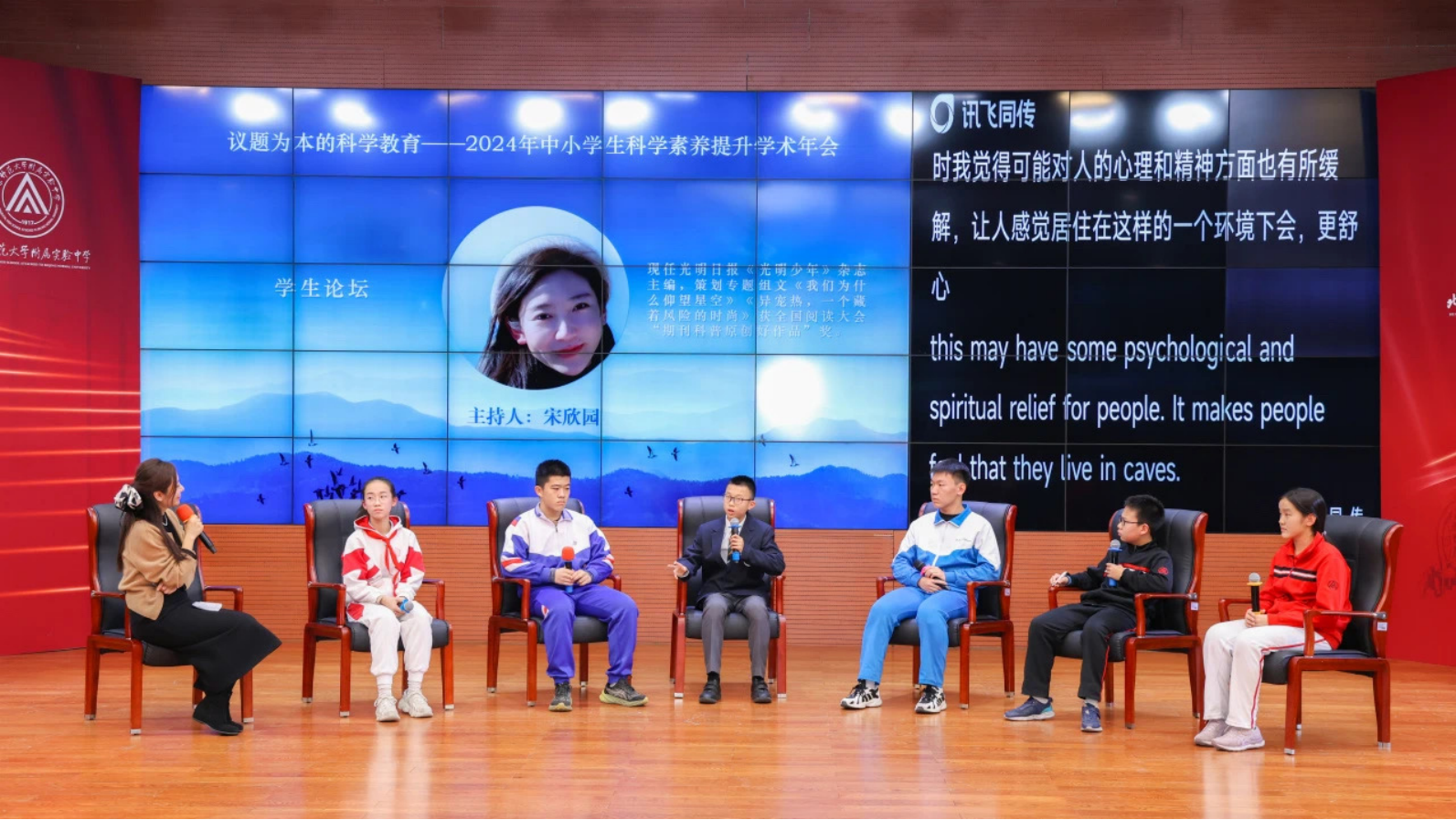
学生论坛
圆满收官:会议总结与展望指明今后研究方向
会议总结环节由山东威海市教研院生物学特级教师张涛主持。本环节首先进行的是平行论坛的总结。平行论坛的四位主持人分别介绍了本论坛的交流情况,肯定了论坛中各地区和学校结合社会性科学议题开展科学教育的做法,概述了论坛的特点,也指出了研究中存在的问题。
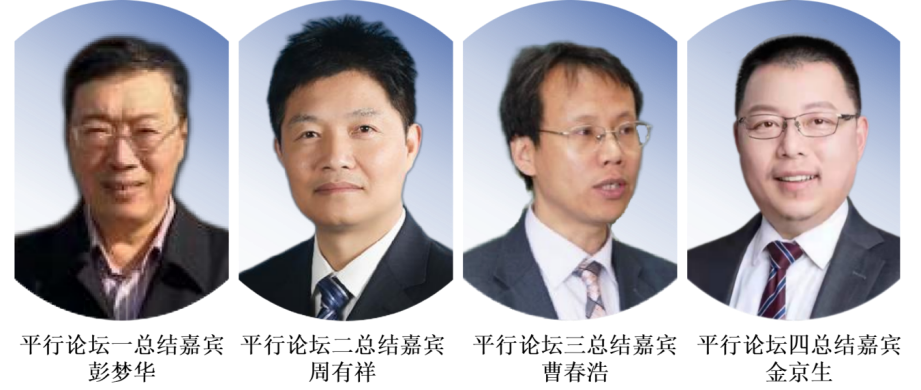
随后,北京师范大学中国基础教育质量监测协同创新中心党委副书记李晓雪引领与会专家,向SSI-L优秀研究报告与案例获奖教师和学生颁发了荣誉证书。
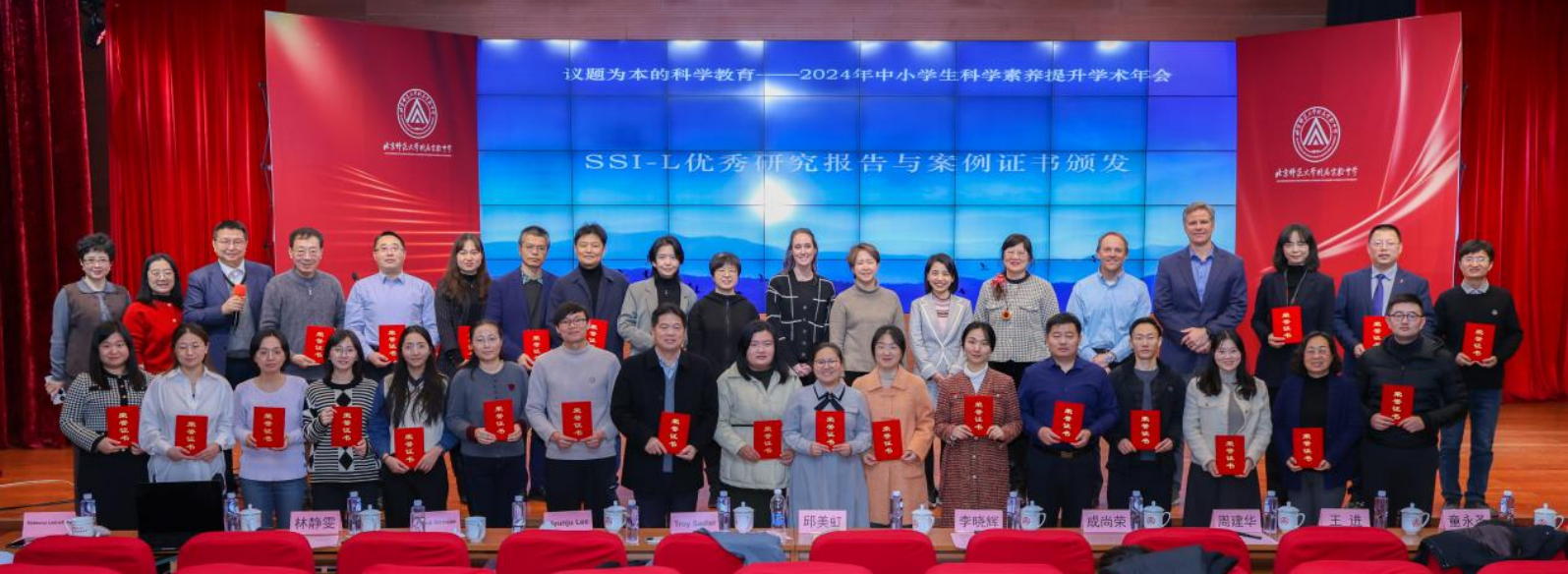
获奖证书颁发合影
会议的最后,北京师范大学中国基础教育质量监测协同创新中心科学提升部主任、“社会性科学议题学习”项目负责人林静对本次学术年会进行了总结。林静对本次年会的内容进行了简要回顾,对为会议提供支持和付出劳动的集体和个人表示了感谢,并鼓励老师们基于多方力量的支持,以社会性科学议题学习为抓手致力学生科学素养发展的研究,朝向理论和实践、理念和行为、中国本土与国际瞭望的双向奔赴做好“科学教育加法”,为中国式现代化发展培养更多未来英才。
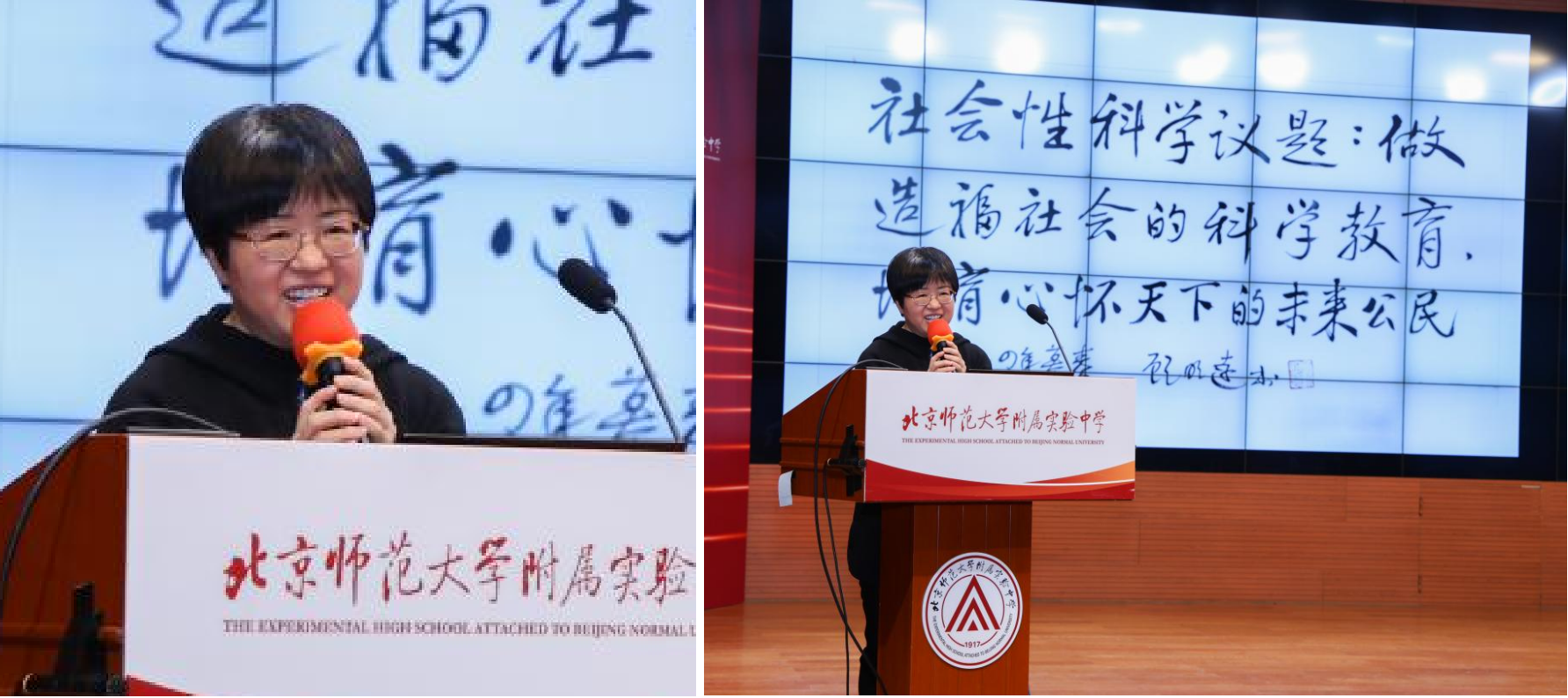
林 静
Amid the wave of educational innovation, issue-based science education has become a transformative educational paradigm. To explore in-depth the challenges faced in the transformation of issue-based science education, build a platform for sharing innovative strategies and experiences in science education, promote in-depth dialogue and cooperation among multiple parties, and jointly seek effective strategies to overcome obstacles and improve the implementation pathways of issue-based science education, on December 13-14, 2024, the 2024 Academic Annual Conference on Enhancing Scientific Literacy of Elementary and Secondary School Students Through Socio-scientific Issue-Based Science Education was held at the Experimental High School Attached to Beijing Normal University. This conference was sponsored by the Collaborative Innovation Center of Assessment for Basic Education Quality at Beijing Normal University, the Alliance for Improving Scientific Literacy (AISL), and Li Xiaohui Distinguished Principal Studio under the Ministry of Education’s New Era Master Teacher and Principal Training Program (2022-2025), and organized by the Experimental High School Attached to Beijing Normal University. Supporting agencies included the Educator Magazine from Guangming Daily, the China Science & Technology Education Magazine, the Environmental Education Magazine, and iFLYTEK Co., Ltd. The two-day conference focused on four major themes: development of issue-based science curricula, research on issue-based science teaching, development of teaching cases for issue-based science education, and reform of issue-based science education assessment. During the conference, 13 keynote speeches and 4 parallel forums were presented, covering extensive content and combining theoretical depth with practical guidance. Additionally, diverse thematic sharing activities such as principal forums and student forums were carefully planned, bringing participants a comprehensive and multi-dimensional academic feast. More than 240 renowned experts and scholars from China, the United States, the United Kingdom, South Korea, representatives from Beijing Normal University Socio-Scientific Issues Learning project partner schools, disciplinary guidance experts, as well as principals and outstanding teachers, gathered to participate in this grand exchange of ideas in science education.
Picturing the Blueprint: Opening Remarks Expressing Earnest Expectations
Chen Guocai, General Secretary of the Party Committee of the Experimental High School Attached to Beijing Normal University, Liu Hui, Deputy Secretary of the Party Committee of Beijing Normal University, and Huang Xiaohua, Deputy Director of the Department of Teacher Affairs of the Ministry of Education, each delivered an opening remark at the conference.
Chen Guocai emphasized in his speech that science education is an urgent necessity in response to current era development, a cornerstone of national prosperity, and a core pathway for cultivating innovative talents. He expressed his hope that through in-depth exchanges and intellectual collisions among attendees, perspectives could be broadened, innovative inspiration ignited, and the limitless possibilities of science education explored together. He called for collective efforts to promote the innovative development of science education and to contribute to nurturing a new generation of youth with international vision, innovative capability, and a strong sense of social responsibility.
Liu Hui underscored the crucial role of developing science and technology talents in the modernization of the nation. She pointed out that General Secretary Xi Jinping’s remark has provided clear direction and high expectations for science education. Looking ahead, Liu Hui highlighted that in response to the needs of the current era, the nation, and education, we have both the responsibility and obligation to advance the in-depth development of science education in primary and secondary schools. This will lay a solid foundation for cultivating high-quality talents with an innovative spirit and practical abilities for the future.
Huang Xiaohua emphasized that the Opinions of the CPC Central Committee and the State Council on Strengthening the Construction of the Teaching Workforce in the New Era and the principles of the National Education Conference have pointed the way forward for science education. Science education is key to enhancing national scientific literacy and strengthening the foundation of an education power. In the context of globalization and digitalization, improving science education—especially enhancing the scientific literacy and science education skills of principals and teachers—is of paramount importance. Huang Xiaohua put forward three key recommendations: “First, great emphasis must be placed on building a strong team of science teachers in basic education; second, collaboration between science and education should be strengthened to promote the high-quality development of science education; third, digital intelligent platforms should be well developed to enrich science education resources.”
Sowing Hope: Launch of the Training Program of Leading Figures in Science Education and the Selection of Exemplary Teachers of Great Nation
Following a brief opening ceremony, Mr. Xu Gongming, President of Educator magazine of Guangming Daily, delivered an introduction to the selection process for the “Exemplary Teachers of Great Nation – Leading Figures in Science Education.” This training program is jointly initiated by Educator magazine and the Growth Fund Management Committee for Exemplary Teachers of Great Nation Program at Beijing Normal University. Xu provided an overview of the program’s background and basic situation, encouraging active participation from in-service primary and secondary school teachers engaged in science-related subjects.
Localization Leadership: Enhancing Science Education through Additive Approaches
Wang Yusheng, former Director of the China Science and Technology Museum, presented a compelling report titled “Scientific Literacy in the AI Era.” He emphasized that the essence of science lies in the pursuit of truth, goodness, and beauty, and that scientists maintain a lifelong curiosity and spirit of exploration. Children, endowed with imagination and curiosity, are natural-born scientists. Wang outlined three characteristics of scientific research: the instantaneity of inspiration, the spontaneity of methods, and the unpredictability of paths. He proposed a “three-step” model for talent development and cultivation — discovering talent in practice, nurturing talent through activities, and uniting talent in meaningful endeavors — arguing that issue-based science education is a powerful pathway for cultivating scientific talent.
Jiang Tong, academician of the Academia Europaea and Executive Dean of Nanjing University of Information Science and Technology delivered a keynote speech titled “Boiling Climate and Green Responses.” He began by elaborating on the pivotal role and significance of the IPCC’s Sixth Assessment Report in global climate governance. He then analyzed, with detailed data and vivid case studies, the impacts and associated disaster risks brought by climate change this year. Based on this analysis, he proposed strategies for climate risk response, offering valuable insights and directions for tackling global climate challenges, which sparked deep reflection and widespread resonance among attendees.
Shi Gendong, Executive Director of the National Committee for Education for Sustainable Development in China, began his talk by referencing the outcome document of the recent UN Future Summit, and presented his report, titled “Science Education from the Perspective of a Future Compact.” His presentation highlighted the critical role of science education in enhancing national scientific literacy, fostering innovative talents, and nurturing youth with global perspectives and a sense of responsibility. He proposed three strategic approaches in science education: implementing a series of E-STEAM courses, organizing science and innovation clubs in batches, and selecting and cultivating leading figures in scientific innovation.
Li Xiaohui, Principal and Deputy Secretary of the Party Committee of the Experimental High School Attached to Beijing Normal University, delivered a report titled “Advancing Science Education through Additive Approaches: Building a Multi-Dimensional School Science Education System.” Drawing on the school's developmental history in science education and reflections on cultivating innovative talents, Li detailed the school’s practices in continuously expanding the boundaries of science education and building a comprehensive and multi-dimensional school science education system. He came up with four dimensions: promoting the spirit of scientists and science, building a multi-level science curriculum map, expanding platforms and spaces for student practices in science innovation, and strengthening the construction of science education faculty and multi-stakeholder collaborative education mechanism.
Lin Jing, Director of the Science Development Department of the Collaborative Innovation Center of Assessment for Basic Education Quality at Beijing Normal University and head of the Beijing Normal University Socio-scientific Issues Learning Project, presented a report titled “Research and Practice of Socio-scientific Issues-Based Science Education in Additive Approaches.” Lin began by explaining the evolving conotations of scientific literacy from three perspectives: the internal, external, and social aspects of science. She then introduced the SSI-L project, launched in 2020, which—through interdisciplinary, theme-based, and project-based paths—has explored innovative methods under the collaboration of domestic and international experts and school leaders and teachers. Early results demonstrate SSI-L’s value in developing students' higher-order thinking, interdisciplinary skills, and social responsibility. Looking ahead, Ms. Lin expressed the research team’s commitment to refining instructional strategies and transforming classroom models to better achieve educational outcomes through SSI-L.
Geng Shen, Senior Editor at the Beijing Academy of Educational Sciences and expert advisor to the SSI-L project at Beijing Normal University, delivered a report titled “Socio-Scientific Issues: An Effective Carrier of Comprehensive Quality Education.” He offered a deep analysis of the differences in thematic inquiry across learners of varying ages—elementary, middle school, university students, and adults. He encouraged educators to broaden their perspectives and explore socio-scientific issues from diverse and historical angles. Geng also expressed his expectation that joint efforts off all attendees would create a “flywheel effect” —a dynamic where sustained effort continuously propels the flywheel to spin forward spontaneously with high speed momentum, even amid challenges.
International References: Frontiers in Issue-Based Science Education Reform
Professor Chiu Mei-Hung, Honorary Professor at National Taiwan Normal University, delivered a speech titled “Linking Issues, Modeling, and Systems Thinking: Expanding New Perspectives in Science Teaching.” Her talk aimed to explore how issue-oriented teaching, modeling-based teaching, and systems thinking can be meaningfully integrated to open new horizons in science education. Professor Chiu presented in detail how to carry out issue-based science education through the “DEAR” modeling pathway and proposed a progressive development framework of model-based teaching, modeling-based teaching, and cognitive practice. She pointed out that “Systematic Thinking” is not equivalent to “Systems Thinking,” and emphasized the importance of guiding students to engage with their environment and establish an interactive connection between the individual and their surroundings.
Professor Troy Sadler from the University of North Carolina at Chapel Hill gave a report titled “Scientific Modeling- and Socio-scientific Modeling-Based SSI Teaching.” Professor Sadler emphasized that socio-scientific issues (SSI) are complex societal problems closely tied to scientific domains. His research team has studied both scientific modeling and socio-scientific modeling and conducted a series of modeling-based practices. These practices demonstrated that using models and modeling to aid student decision-making on SSI is a highly effective strategy, greatly enriching the experiences and outcomes for both students and teachers.
Professor Michael Reiss from the UCL Institute of Education delivered an online presentation titled “Characteristics and Responses in Socio-Scientific Issue Classroom Teaching.” Professor Reiss pointed out that socio-scientific issues are either related to environment and sustainable development or to health and technology. SSI should be approached from smaller entry points rather than from entire complex models. He also emphasized that new teaching strategies need not be employed excessively, but rather appropriately and in a controlled manner. When selecting issues, attention should be paid to ensure the level of difficulty is moderate, including both ethical controversies and opportunities for deep exploration of scientific knowledge.
Professor David Stroupe from the University of Utah gave a talk titled “The Importance of Issue-Based Science Teaching,” and shared real-world classroom examples of issue-based science teaching. Professor Stroupe explained in detail how to support teachers in implementing issue-based teaching effectively. He highlighted the importance of appreciating, understanding, and managing uncertainty and provided practical tools and resources. Additionally, he encouraged educators to guide students in applying their knowledge in community setting practices and emphasized the mission of science educators to support both the current and future teachers, thereby co-creating an efficient learning community.
Professor Hyunju Lee from Ewha Womans University in South Korea delivered a report titled “Socio-Scientific Issue Teaching under the Vision III of Scientific Literacy.” She introduced three projects based on socio-scientific issue learning. One focused on leveraging school and community resources to address socio-scientific issues in local communities. Another emphasized cultivating student’s understanding of the nature of science and technology, encouraging student’s engagement in scientific and engineering practices to solve problems and share solutions within their communities, and thus fostering social responsibility. The third project addressed a shortcoming in science education that it often fails to help students assess or understand risks related to science and technology, and emphasized the process of risk assessment in SSI contexts, including identifying, analyzing, and evaluating risks.
Professor Lin Jing-Wen from National Taipei University of Education presented a compelling report titled “Modeling-Oriented M-STEM and E-SSI Inquiry: A Case Study of Highway Route Selection.” Beginning with a comparison of the characteristics of STEM and SSI, she introduced modeling-oriented issue-based learning. She particularly noted that elementary school students are at a critical stage for developing critical thinking skills, and thus teaching methods should be selected carefully to avoid making them confused. Professor Lin suggested that teachers should start by nurturing student’s passion for environmental protection, building their inquiry foundations and capabilities, and then gradually guiding them to explore more controversial issues and learn to deal with complex argumentation. She emphasized that helping children find joy in research and grow happily is a core educational goal.
Rebecca Lesnefsky, a PhD candidate at the University of North Carolina at Chapel Hill, gave a report titled “A Case Study of Teachers in Socio-Scientific Issue Teaching.” Her research revealed the interrelationships between teacher beliefs, classroom environments, and professional development, offering valuable insights for the successful implementation of SSI. Through analysis of various experimental groups, she identified practical challenges encountered during issue-based activities and emphasized that both students and teachers need robust support to overcome obstacles in classroom teaching.
The various sessions on the first day of the conference were moderated by Wu Shuangzai, Director of the Interview Department of Educator Magazine of Guangming Daily, Zhao Chonghai, Deputy Director of the Youth Science Center of the China Association for Science and Technology, Vice President and Secretary General of the China Association of Children’s Science Instructors, and Editor-in-Chief of China Science and Technology Education, Wang Xiaofei, President of Environmental Education magazine; and Zhao Fangfang, a Liyun Postdoctoral Fellow at the Institute of Science Education, Beijing Normal University. In the final session of the first day, Professor Liu Xiufeng from the University of Macau was invited to comment on the keynote speeches from international participants. Professor Liu summarized four major themes of the international presentations: the value of issue-based teaching, the use of models and modeling in SSI teaching, applications that support teachers in SSI teaching, SSI teaching material development and classroom practices. He also offered five extended suggestions: assessment and evaluation, comparative studies of different teaching models, professional development for in-service teachers, the relationship between SSI and STEM, and the opportunities and challenges that AI brings to SSI teaching.
Hundreds of Flowers Blooming: Parallel Forums Showcasing Diverse Research Achievements
On the morning of December 14, four parallel forums were held simultaneously. The four forums focused on the following themes respectively: development of issue-based science curricula, research on issue-based science teaching, development of teaching cases for issue-based science education, and reform of issue-based science education assessment. A total of 35 research outcomes were shared, contributed by teachers, principals, education researchers, and university faculty and students who are engaged in socio-scientific issue (SSI) research on the front line of basic education across the country.
Parallel Forum 1 was chaired by Peng Menghua, a special-rank physics teacher of the Second High School Attached to BNU, and featured nine remarkable presentations and reports. Yang Wenzhi, Principal of the Shunyi School of the Experimental High School Attached to Beijing Normal University, delivered a talk titled “Creating a School Environment Conducive to the Emergence of Outstanding and Innovative Students,” in which she shared her unique insights. Yang Lin, Principal of the Yanhua Middle School Attached to Beijing Normal University, presented a report titled “Tailoring to Local Contexts and Rooting in Native Resources, Fostering Intelligence and Wisdom to Cultivate Talents: Exploring and Practicing the Development Of Students' Scientific Literacy Based on Regional Resources.” He Lieqi, Director of the Science and Education Center at the Xinyu School Affiliated to Beijing Normal University, delivered a vivid speech on “Science Education Practice and Exploration Centered on Cultivating Innovative Thinking.” Ma Jing, Director of the Student Innovation and Practice Center at the Experimental High School Attached to Beijing Normal University, offered an in-depth discussion titled “Practice and Reflection on the Construction of School Science and Innovation Platforms and Resources.” Li Yi, Party Secretary and Principal of the Baotou Affiliated School of Beijing Normal University, shared valuable experiences in his presentation titled “Supporting Science Education Through Curriculum: An Introduction to Science Education at the Baotou Affiliated School of Beijing Normal University.” Zhang Changhong, Vice Principal of Guangchang Road Elementary School Group in Wenzhou, Zhejiang Province, brought a vivid case titled “Venue Plus: The Practice of Ecosystem Panoramic Transition in Science Education at Guangchang Road Elementary School.” Guo Ruihai, Vice Principal of Dachengzi School in Miyun District, Beijing, delivered a presentation titled “Exploring Local Resources to Cultivate Talents in Science and Technology,” demonstrating the school's unique educational path. Zhu Zhu, a researcher from the Dongcheng District Institute of Educational Sciences in Beijing, presented a report titled “Unit Design and Curriculum Integration under Socio-Scientific Issues.” Li Zhi, Teaching Director at the Sanjiadian Railway Middle School in Beijing, gave an excellent talk on “Consolidating the Core Position of Science Education and Unleashing New Momentum in Scientific Innovation Practice: Practical Exploration of the Characteristic Implementation of School-Based Curriculum in Science Education.”
Following the interactive session, the teachers at the conference had a lively discussion on presentations that had been shared. Zhang Jing, Director of the Lifelong Learning and Sustainable Development Education Research Office at the Beijing Academy of Educational Sciences, and Cheng Shangrong, former Director of the Jiangsu Provincial Institute of Educational Sciences, offered insightful commentary on the shared cases. Meanwhile, other participants actively engaged in dialogue, collectively exploring the future development of science education.
Parallel Forum II was chaired by Zhou Youxiang, a special-rank biology teacher from Bejing Haidian Teachers Training College Education Group, and successfully showcased nine research reports. Zhou contributed his profound insights in his presentation titled “Advancing Socio-Scientific Issue Teaching in Science Education Based on Educational Values.” Jiang Weiyuan, Deputy Director of the Curriculum Office at Yangzhuang Campus of Tongzhou District First Experimental Elementary School, Beijing Academy of Educational Sciences, presented his research report titled “Using Driving Questions to Promote Student’s Socio-Scientific Issues Learning.” Wang Cheng, Li Menghao, and Sun Yifei, teachers from the Experimental High School Attached to Beijing Normal University jointly demonstrated their presentation on “Thoughts and Exploration in Constructing a Learning Environment for Socio-Scientific Issues.” Wang Yufeng, a teacher from Taizhou Experimental School Affiliated to Beijing Normal University, gave a detailed presentation titled “Stimulating Potential: Exploration and Insights into Interdisciplinary Project-Based Learning in Science Education.” Ma Qiang, a researcher at the Shijingshan Branch of Beijing Institute of Education, shared effective strategies in a talk titled “Analyzing the SSI-L Strategy for Cultivating Sustainable Development Literacy.” Pan Lijun, Deputy Director of Teaching Affairs at Hebei Elementary School in Weihai, Shandong Province, introduced her research on “Micro-Project-Based Learning Centered on Socio-Scientific Issues.” Huang Ziyue, a teacher from the Olive Tree International Academy in Hangzhou, Zhejiang Province, delivered a presentation titled “Innovation in Issue-Based Science Teaching.” Zhao Hongyan, a PhD candidate at the Collaborative Innovation Center of Assessment for Basic Education Quality at Beijing Normal University, shared her insights on “Discourse-Interactive Modeling Teaching Driven by ‘Uncertainty.’” Liu Caihe and Jia Jie, two teachers from the Asia-Pacific Experimental School of Beijing Normal University, jointly presented a report titled “Challenges and Strategies in SSI-L Classroom Teaching.”
After the presentation session, Li Weichen, a special-rank elementary school science teacher from the Miyun District Teacher Training Institute, and Geng Shen, Senior Editor at the Beijing Academy of Educational Sciences, provided precise and insightful comments on the presented research. Participants actively engaged in discussion, collaboratively exploring new directions for issue-based science education teaching and research.
Parallel Forum III was chaired by Cao Chunhao, a special-rank elementary school science teacher from the Tongzhou District Teacher Training Center in Beijing, and featured nine case development presentations from across the country. Li Yanling, Party Branch Secretary of Desheng Middle School in Xicheng District, Beijing, presented her case study titled “Commuting School Bus in Beijing.” Yu Yang, a biology teacher at the China University of Mining and Technology Branch of Beijing 101 Middle School, shared a presentation titled “Is Traditional Chinese Medicine Fragrance Culture Worth Preserving?” Zhao Qimin, an information technology teacher from the Aerospace City School Affiliated to the High School Affiliated to Renmin University of China, delivered a talk titled “Unveiling Phishing: Awareness, Prevention, and Social Action.” Zhang Yuying, a science teacher at the Second Elementary School of Changjun Moon Island in Wangcheng District, Changsha, Hunan Province, introduced her project “Sky Cities and Wetland Development.” Jiang Junjie, a geography teacher at Yangpu Senior High School in Shanghai, provided a presentation titled “Do Campus Wetlands Require Artificial Intervention?” Zhang Yaoyin, an elementary school science research instructor from the Yueqing City Institute of Educational Research and Training in Zhejiang Province, presented a report titled “Becoming a Healthier Version of Oneself.” Jiang Yanchun, Head of the Science Teaching and Research Group at Xiasha Middle School in Hangzhou, Zhejiang Province, shared a case titled “Are Soilless Fruits and Vegetables a ‘Stupidity Tax’?” Xu Ruihuan, a psychology teacher at Xiaozhuang Elementary School in Nanjing, Jiangsu Province, discussed “The Pros and Cons of Online Gaming.” Wang Xiaoying, Director of Moral Education at Fuxin Elementary School in Rongcheng, Shandong Province, spoke about “Rongcheng’s Landscape Trees and Decorative Lighting.”
Following the case exchange session, participating teachers engaged in in-depth discussions on the presentations that had been shared. Wang Jing, Deputy Secretary of the Education and Teaching Research Center of Huancui District, Weihai, Shandong Province, and Wang Peng, Secretary-General of the Beijing Education for Sustainable Development Association, provided insightful commentary on the presented cases. Additionally, international experts including Chiu Mei-Hung, Lin Jing-Wen, and Hyunju Lee offered their evaluations and engaged in discussion. Participants left enriched and inspired.
Parallel Forum IV was chaired by Jin Jingsheng, Director of the Junior High Division at the Hangzhou Institute of Basic Education Research, Zhejiang Province, and featured eight research outcomes on the reform of science education assessment. Jin Jingsheng first presented his research titled “Promoting Inquiry through Assessment: The Development and Application of Standard-Based Science Inquiry Assessment Tools.” Following that, Tang Shoujia, Vice Principal of Shichang Middle School in the High-Tech Zone of Weihai, Shandong Province, presented his research on “Analysis of SSI Elements in Academic Assessment and their Instructional Implications.” Chen Yujing, a PhD candidate at the Faculty of Education, The University of Hong Kong, delivered a report titled “Socio-Scientific Orientations of Mainland Chinese High School Students as Global Citizens: A Quantitative and Qualitative Analysis Based on Surveys.” Liu Yangdan, a team member of the “Socio-Scientific Issue Learning” project at Beijing Normal University, shared her work “Assessment of Scientific Argumentation in Socio-Scientific Issues.” Yao Xuefei, a teaching researcher from the Qiantang District Teacher Education Institute in Hangzhou, Zhejiang Province, provided an in-depth analysis of “Applied Research on Performance Assessment in Regional Teaching.” Luo Chengji, a PhD candidate from the Collaborative Innovation Center of Assessment for Basic Education Quality at Beijing Normal University, presented his work titled “Research on the Assessment of Socio-Scientific Reasoning Ability.” Liu Xinyu, Deputy Dean of the School of Life Sciences at Shenyang Normal University, shared his work “SSI-Based Assessment System Centered on Core Competencies in Biology.” Feng Bing, a master’s student at the Collaborative Innovation Center of Assessment for Basic Education Quality at Beijing Normal University, delivered a report on “Conceptual Clarification and Assessment Analysis of Scientific Identity.”
During the commentary and discussion session, Zhang Tao, a special-rank biology teacher of Weihai Education and Teaching Research Institute, Shandong Province, and Professor Li Youfa, Director of the Physical Education and Health Monitoring Department at the Collaborative Innovation Center of Assessment for Basic Education Quality at Beijing Normal University, gave excellent reviews of the exchanged cases. Participants actively raised questions and responded enthusiastically, creating a lively and engaging atmosphere.
In-Depth Dialogue: A Collision of Minds at the Principals’ Forum and Students’ Forum
On the afternoon of December 14, the event began with the Principals’ Forum. The forum was moderated by Cheng Shangrong, National Inspector and former Director of the Jiangsu Institute of Educational Science. Guests attending the forum included Zhou Jianhua, Principal of the Aerospace City School Affiliated to the High School Affiliated to Renmin University of China; Wang Jin, Party Secretary of Taizhou Experimental School Attached to Beijing Normal University; Tong Yongsheng, Party Secretary of the High School Affiliated to Hangzhou Dianzi University in Zhejiang Province; Li Lei, Principal of Yangting School in Weihai, Shandong Province; and Wang Jinglan, Principal of Jinding Street No. 2 Elementary School in Shijingshan District, Beijing. Under the guidance of the moderator, the principals expressed their insights on three key areas: the new paradigm and educational value of issue-based science education, practical experiences in implementing socio-scientific issues (SSI) teaching in their schools, and how to overcome the challenges and barriers in socio-scientific issues learning. The dialogue between the moderator and guests was rich and thought-provoking.
Following this, the Students’ Forum was held, moderated by Song Xinyuan, Editor-in-Chief of Guangming Youth Magazine. Students from five schools in Beijing showcased their achievements in socio-scientific issues learning. Ma Peize and Liu Che from the Experimental High School Attached to Beijing Normal University presented “Green Travel—Our Actions to Address Global Warming”. Feng Hanqi and Ling Yichen, also from the same school, delivered a report titled “Our Actions to Address Global Warming.” Both presentations were guided by three teachers Wang Cheng, Li Menghao, and Sun Yifei. Zhang Han and Peng Changqi from Asia-Pacific Experimental School of Beijing Normal University, under the guidance of two teachers Jia Jie and Liu Caihe, presented “Thinking Like Scientists—Modeling the Greenhouse Effect.” Zhang Ziyou from the Shijingshan School of the High School Affiliated to Renmin University of China, supervised by two teachers Xiao Yuting and Ma Qiang, showcased a study titled “An Adventure in Science Education—Research on Dry Ice Experiments in a Space Station Environment.” Gao Pengfei from Jingyuan School in Beijing, under the guidance of Song Qiubin, presented “Research on the Effect of Attractants on Mealworms' Consumption of Polystyrene.” Wang Haoyu from the Shijingshan School of the Affiliated High School of Peking University, under the guidance of Yang Chaojie, delivered a presentation titled “Observation and Cultivation Suggestions for Vegetation in Residential Communities in the Northern Urban Areas.”
After the impressive student presentations, a lively student round table discussion was held. The discussion closely focused on the theme “Protecting the Ecosystem: Becoming Pioneers of Green Living.” The interaction between the moderator and students was full of highlights, creating a vibrant and engaging atmosphere on site.
Successful Conclusion: Conference Summary and Outlook Point to Future Research Directions
The conference summary session was chaired by Zhang Tao, a special-rank biology teacher of Weihai Education and Teaching Research Institute, Shandong Province. This session began with a summary of the parallel forums. The four moderators of the parallel forums each introduced the discussion highlights of their respective sessions. They affirmed the various regional and school-based practices of integrating socio-scientific issues into science education, outlined the distinguishing features of each forum, and also pointed out existing challenges in the research.
Subsequently, Li Xiaoxue, Deputy Secretary of the Party Committee of the Collaborative Innovation Center of Assessment for Basic Education Quality at Beijing Normal University, led participating experts in presenting honorary certificates to teachers and students who received awards for outstanding SSI-L research reports and case studies.
At the end of the conference, Lin Jing, Director of the Science Development Department at the Collaborative Innovation Center of Assessment for Basic Education Quality at Beijing Normal University and head of the BNU Socio-Scientific Issues Learning Project, delivered the closing summary of this academic annual meeting. Lin Jing briefly reviewed the content of the conference, expressed sincere thanks to all the groups and individuals who contributed their support and efforts, and encouraged educators to rely on multi-party support to engage in research on the development of students’ scientific literacy through the lens of socio-scientific issues learning. She emphasized the importance of advancing theory and practice, aligning concepts and actions, and bridging local Chinese and global perspectives, in order to add value to “science education” and cultivate more future talents for the development of Chinese-style modernization.
